November 18, 2014 |
| 8:45 a.m. |
Introductory Remarks
Louis Marc Ducharme, Director, Statistics Department, IMF
 Louis Marc Ducharme was appointed Director of the IMFÂ’'s Statistics Department on June 17, 2013. Before joining the IMF, he spent 30 years at Statistics Canada where he held various positions in the areas of economic statistics. His last tenure was Assistant Chief Statistician responsible for all economic statistics. During his career, he provided extensive technical assistance to a number of countries in Latin America. He also taught macroeconomics at the Graduate School of Public and International Affairs at the University of Ottawa. He has a Ph.D in Economics and Science Policy from the University of Sussex, United Kingdom, and both a masterÂ’s and bachelorÂ’s degree in economics from the University of Montreal in Canada. Louis Marc Ducharme was appointed Director of the IMFÂ’'s Statistics Department on June 17, 2013. Before joining the IMF, he spent 30 years at Statistics Canada where he held various positions in the areas of economic statistics. His last tenure was Assistant Chief Statistician responsible for all economic statistics. During his career, he provided extensive technical assistance to a number of countries in Latin America. He also taught macroeconomics at the Graduate School of Public and International Affairs at the University of Ottawa. He has a Ph.D in Economics and Science Policy from the University of Sussex, United Kingdom, and both a masterÂ’s and bachelorÂ’s degree in economics from the University of Montreal in Canada.
|
| 9:00 a.m. |
Welcome Remarks
Christine Lagarde, Managing Director, IMF
 Christine Lagarde is the eleventh Managing Director of the International Monetary Fund. Christine Lagarde is the eleventh Managing Director of the International Monetary Fund.
Christine Lagarde was born in Paris and completed high school in Le Havre and attended Holton Arms School in Bethesda (Maryland, USA). She then graduated from law school at University Paris X, and obtained a MasterÂ’s degree from the Political Science Institute in Aix en Provence. After being admitted as a lawyer to the Paris Bar, Christine Lagarde joined the international law firm of Baker & McKenzie as an associate, specializing in Labor, Anti-trust, and Mergers & Acquisitions. A member of the Executive Committee of the Firm in 1995, Christine Lagarde became the Chairman of the Global Executive Committee of Baker & McKenzie in 1999, and subsequently Chairman of the Global Strategic Committee in 2004. Lagarde joined the French government in June 2005 as Minister for Foreign Trade. After a brief stint as Minister for Agriculture and Fisheries, in June 2007 she became the first woman to hold the post of Finance and Economy Minister of a G-7 country. From July to December 2008, she also chaired the ECOFIN Council, which brings together Economics and Finance Ministers of the European Union. As a member of the G-20, Lagarde was involved in the GroupÂ’s management of the financial crisis, helping to foster international policies related to financial supervision and regulation and to strengthen global economic governance. As Chairman of the G-20 when France took over its presidency for the year 2011, she launched a wide-ranging work agenda on the reform of the international monetary system. In July 2011, Lagarde became the eleventh Managing Director of the IMF, and the first woman to hold that position. Lagarde was named Officier in the Légion d'honneur in April 2012. A former member of the French national team for synchronized swimming, Lagarde is the mother of two sons.
|
| 9:20 a.m. |
Keynote Speech
Alan Greenspan, President, Greenspan Associates LLC, and former Chairman of the Federal Reserve Board
 Alan Greenspan served as chair of the Federal Reserve from 1987 to 2006, appointed by Presidents Reagan, Bush, Clinton, and Bush. He previously served as chair of President Ford’s Council of Economic Advisors. He received a B.S. (summa), M.A., and Ph.D. from New York University and honorary degrees from Harvard, Yale, Pennsylvania, Notre Dame, Leuven, and Edinburgh universities, as well as the Legion of Honor (France), Knight Commander of the British Empire, and the Medal of Freedom—the United States’ highest civil award. Alan Greenspan served as chair of the Federal Reserve from 1987 to 2006, appointed by Presidents Reagan, Bush, Clinton, and Bush. He previously served as chair of President Ford’s Council of Economic Advisors. He received a B.S. (summa), M.A., and Ph.D. from New York University and honorary degrees from Harvard, Yale, Pennsylvania, Notre Dame, Leuven, and Edinburgh universities, as well as the Legion of Honor (France), Knight Commander of the British Empire, and the Medal of Freedom—the United States’ highest civil award.
|
| 10:00 a.m. |
Session I
Are There Enough and Good Data to Assess Macroeconomic and Financial Vulnerabilities?
Richard Berner, Director, Office of Financial Research, U.S. Treasury
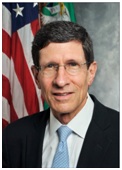 Richard Berner has served as Director of the Office of Financial Research since January 2013. In this capacity, he leads the office that serves the Financial Stability Oversight Council, its member agencies, and the public by improving the quality, transparency, and accessibility of financial data and information by conducting and sponsoring research related to financial stability, and by promoting best practices in risk management. Berner previously served as Counselor to the Secretary of the Treasury. Before joining the Treasury, he was Co-Head of Global Economics at Morgan Stanley. He has also worked at Mellon Bank, Salomon Brothers, Morgan Guaranty Trust Company, Wharton Econometrics, and the Federal Reserve Board. Berner received his BachelorÂ’s degree from Harvard College and Ph.D. from the University of Pennsylvania. Richard Berner has served as Director of the Office of Financial Research since January 2013. In this capacity, he leads the office that serves the Financial Stability Oversight Council, its member agencies, and the public by improving the quality, transparency, and accessibility of financial data and information by conducting and sponsoring research related to financial stability, and by promoting best practices in risk management. Berner previously served as Counselor to the Secretary of the Treasury. Before joining the Treasury, he was Co-Head of Global Economics at Morgan Stanley. He has also worked at Mellon Bank, Salomon Brothers, Morgan Guaranty Trust Company, Wharton Econometrics, and the Federal Reserve Board. Berner received his BachelorÂ’s degree from Harvard College and Ph.D. from the University of Pennsylvania.
Presentation by Richard Berner
The burden of the assessment of macroeconomic and financial vulnerabilities lies on reliable and timely data, as well as on data availability. However, policymakers and academics often talk about data gaps for assessment of vulnerabilities. This session will focus on six main questions: (i) do we have enough data and do we have appropriate data to make an informed and timely assessment of economic vulnerabilities? (ii) do we use available data efficiently for vulnerability assessment? (iii) do we have/utilize appropriate analytical tools to use the data effectively? (iv) what are the urgent data gaps that need to be filled in? (v) does the global community discuss any improvements on data gaps compared to what existed during the global financial crisis (2007-08)? and (vi) are "data gaps" region-specific?
Chair: Olivier Blanchard, Director, Research Department, IMF
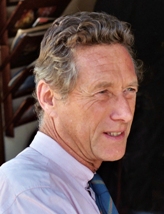 Olivier Blanchard, a citizen of France, has spent his professional life in Cambridge, U.S. After obtaining his Ph.D in Economics at the Massachusetts Institute of Technology (MIT) in 1977, he taught at Harvard University, returning to MIT in 1982, where he has been since then. He is the Class of 1941 Professor of Economics, and past Chair of the Economics Department. He is currently on leave from MIT, as Economic Counselor and Director of the Research Department of the IMF. He is a macroeconomist, who has worked on a wide set of issues, from the role of monetary policy, to the nature of speculative bubbles, to the nature of the labor market and the determinants of unemployment, to transition in former communist countries. In the process, he has worked with numerous countries and international organizations. He is the author of many books and articles, including two textbooks in macroeconomics: one at the graduate level with Stanley Fischer, and one at the undergraduate level. He is a fellow and past Council member of the Econometric Society, a past vice president of the American Economic Association, and a member of the American Academy of Sciences. Olivier Blanchard, a citizen of France, has spent his professional life in Cambridge, U.S. After obtaining his Ph.D in Economics at the Massachusetts Institute of Technology (MIT) in 1977, he taught at Harvard University, returning to MIT in 1982, where he has been since then. He is the Class of 1941 Professor of Economics, and past Chair of the Economics Department. He is currently on leave from MIT, as Economic Counselor and Director of the Research Department of the IMF. He is a macroeconomist, who has worked on a wide set of issues, from the role of monetary policy, to the nature of speculative bubbles, to the nature of the labor market and the determinants of unemployment, to transition in former communist countries. In the process, he has worked with numerous countries and international organizations. He is the author of many books and articles, including two textbooks in macroeconomics: one at the graduate level with Stanley Fischer, and one at the undergraduate level. He is a fellow and past Council member of the Econometric Society, a past vice president of the American Economic Association, and a member of the American Academy of Sciences.
Discussant: Dietrich Domanski, Head of Policy Analysis, Bank for International Settlements
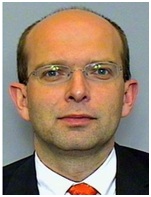 Dietrich Domanski is Head of Policy Analysis in the Monetary and Economic Department at the Bank for International Settlements (BIS) in Basel. He oversees the preparation of the regular meetings of central bank governors at the BIS and of the central bank committees hosted by the BIS. Before joining the BIS in 2000, Domanski headed the capital markets group in the Economics Department of the Bundesbank. He also worked as IMF Advisor to Bank Indonesia during the Asian crisis. At the BIS, Domanski was in charge of the macroeconomic analysis unit (from 2005–-07) and was Secretary to the Committee on the Global Financial System (CGFS) from September 2007– to August 2010. Domanski has published on a range of financial stability issues in German and English. His main research interests include the interaction of monetary policy, financial markets and the real economy, and the role of financial intermediation in economic development. Dietrich Domanski is Head of Policy Analysis in the Monetary and Economic Department at the Bank for International Settlements (BIS) in Basel. He oversees the preparation of the regular meetings of central bank governors at the BIS and of the central bank committees hosted by the BIS. Before joining the BIS in 2000, Domanski headed the capital markets group in the Economics Department of the Bundesbank. He also worked as IMF Advisor to Bank Indonesia during the Asian crisis. At the BIS, Domanski was in charge of the macroeconomic analysis unit (from 2005–-07) and was Secretary to the Committee on the Global Financial System (CGFS) from September 2007– to August 2010. Domanski has published on a range of financial stability issues in German and English. His main research interests include the interaction of monetary policy, financial markets and the real economy, and the role of financial intermediation in economic development.
Presentation by Dietrich Domanski
Discussant: Ricardo Vicuña, Director, Statistics Division, Central Bank of Chile
 Ricardo Vicuña has been Statistics Division Director at the Central Bank of Chile since May 2008, responsible for the compilation of the main macroeconomic statistics in Chile, including national accounts, balance of payments, and monetary and financial statistics.
Presently, he acts as the Central Bank of Chile representative to the BIS Irving Fisher Committee on Central Bank Statistics, the OECD Economic Statistics Policy Committee, and CEMLAÂ’'s (Center for Latin American Monetary Studies) Forum on Financial Information. He was previously Manager of the Statistical Information and Research Division at the Central Bank of Chile (from December 2000); Manager of the Foreign Trade and Trade Policy Division (1998–-2000); and Manager of the Trade Policy Division (1995–-98). Before starting at the central bank, he was an economic advisor to the Minister of Finance from 1990–-94, in the fields of international trade and foreign investment. During this period, he participated as a member of ChileÂ’'s negotiating team in several regional free trade agreements in the fields of trade and investment. Mr. Vicuña has a degree in Economics from the University of Chile and a Master of Arts and Ph.D in Economics from the University of California, Los Angeles. He has taught economic courses at local universities, including the University of Chile and Catholic University and published extensively in the field of macroeconomic statistics. Ricardo Vicuña has been Statistics Division Director at the Central Bank of Chile since May 2008, responsible for the compilation of the main macroeconomic statistics in Chile, including national accounts, balance of payments, and monetary and financial statistics.
Presently, he acts as the Central Bank of Chile representative to the BIS Irving Fisher Committee on Central Bank Statistics, the OECD Economic Statistics Policy Committee, and CEMLAÂ’'s (Center for Latin American Monetary Studies) Forum on Financial Information. He was previously Manager of the Statistical Information and Research Division at the Central Bank of Chile (from December 2000); Manager of the Foreign Trade and Trade Policy Division (1998–-2000); and Manager of the Trade Policy Division (1995–-98). Before starting at the central bank, he was an economic advisor to the Minister of Finance from 1990–-94, in the fields of international trade and foreign investment. During this period, he participated as a member of ChileÂ’'s negotiating team in several regional free trade agreements in the fields of trade and investment. Mr. Vicuña has a degree in Economics from the University of Chile and a Master of Arts and Ph.D in Economics from the University of California, Los Angeles. He has taught economic courses at local universities, including the University of Chile and Catholic University and published extensively in the field of macroeconomic statistics.
Presentation by Ricardo Vicuña
Discussant: Mark Zandi, Chief Economist, MoodyÂ’'s Analytics
 Mark M. Zandi is chief economist of MoodyÂ’'s Analytics, where he directs economic research. He is a cofounder of Economy.com, which MoodyÂ’'s purchased in 2005.
Zandi’'s broad research interests encompass macroeconomics, financial markets, and public policy. His recent research has focused on mortgage finance reform and the determinants of mortgage foreclosure and personal bankruptcy. He has analyzed the economic impact of various tax and government spending policies and assessed the appropriate monetary policy response to bubbles in asset markets. A trusted adviser to policymakers and an influential source of economic analysis for businesses, journalists, and the public, Zandi frequently testifies before U.S. Congress on topics including the economic outlook, the nation’'s daunting fiscal challenges, the merits of fiscal stimulus, financial regulatory reform, and foreclosure mitigation. Zandi is the author of Paying the Price: Ending the Great Recession and Beginning a New American Century and Financial Shock: A 360º Look at the Subprime Mortgage Implosion, and How to Avoid the Next Financial Crisis. Zandi earned his B.S. from the Wharton School at the University of Pennsylvania and his Ph.D at the University of Pennsylvania. Mark M. Zandi is chief economist of Moody’'s Analytics, where he directs economic research. He is a cofounder of Economy.com, which Moody’'s purchased in 2005.
Zandi’'s broad research interests encompass macroeconomics, financial markets, and public policy. His recent research has focused on mortgage finance reform and the determinants of mortgage foreclosure and personal bankruptcy. He has analyzed the economic impact of various tax and government spending policies and assessed the appropriate monetary policy response to bubbles in asset markets. A trusted adviser to policymakers and an influential source of economic analysis for businesses, journalists, and the public, Zandi frequently testifies before U.S. Congress on topics including the economic outlook, the nation’'s daunting fiscal challenges, the merits of fiscal stimulus, financial regulatory reform, and foreclosure mitigation. Zandi is the author of Paying the Price: Ending the Great Recession and Beginning a New American Century and Financial Shock: A 360º Look at the Subprime Mortgage Implosion, and How to Avoid the Next Financial Crisis. Zandi earned his B.S. from the Wharton School at the University of Pennsylvania and his Ph.D at the University of Pennsylvania.
|
| 11:15 a.m. |
Coffee Break and Exhibition Visit (Atrium) |
| 11:45 a.m. |
Session II
Cross-Border Linkages - Identifying and Measuring Vulnerabilities
Philip Lane, Whately Professor of Political Economy, Trinity College Dublin
Paper and Presentation by Philip Lane
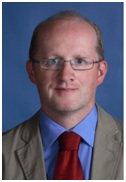 Philip Lane is Whately Professor of Political Economy at Trinity College Dublin. He has published widely on financial globalization, macroeconomic policy, and European monetary integration. He has also acted as an academic consultant to a range of international organizations and national central banks. He is a managing editor of Economic Policy and a research fellow of the Center for Economic and Policy Research. Philip Lane is Whately Professor of Political Economy at Trinity College Dublin. He has published widely on financial globalization, macroeconomic policy, and European monetary integration. He has also acted as an academic consultant to a range of international organizations and national central banks. He is a managing editor of Economic Policy and a research fellow of the Center for Economic and Policy Research.
Increased globalization has brought substantial benefits; but it has also amplified countriesÂ’ vulnerabilities. In a highly interconnected world, shocks propagation can be magnified and rapidly transmitted across the global system, while uncoordinated country policy response can be insufficient to mitigate the shocks. This session will focus on the developed/existing tools used to identify and measure interconnectedness and spillovers for systemic risk assessment and macroeconomic surveillance, as well as on the need for cooperation/coordination in macroeconomic and financial policymaking.
Chair: Changyong Rhee, Director, Asia and Pacific Department, IMF
 Changyong Rhee, is the Director of the Asia and Pacific Department at the IMF, where he oversees the FundÂ’'s work on the region, including its lending operations and bilateral and multilateral surveillance of 36 economies ranging from China, Japan, and India to the Pacific Islands. Prior to joining the IMF in February 2014, Mr. Rhee was Chief Economist of the Asian Development Bank (ADB); Secretary General and Sherpa of the Presidential Committee for the 2010 G-20 Seoul Summit; Vice Chairman of the Financial Services Commission (FSC) and Chairman of the Securities and Futures Commission of Korea; professor of Economics at Seoul National University and the University of Rochester. He has also been a frequent policy advisor to the government of Korea, including in the Office of the President, the Ministry of Finance and Economy, the Bank of Korea, the Korea Securities Depository, and the Korea Development Institute. Mr. Rhee has published widely in the fields of macroeconomics, financial economics, and on the Korean economy. He holds a Ph.D from Harvard University and an undergraduate honors degree from Seoul National University, both in Economics. Changyong Rhee, is the Director of the Asia and Pacific Department at the IMF, where he oversees the FundÂ’'s work on the region, including its lending operations and bilateral and multilateral surveillance of 36 economies ranging from China, Japan, and India to the Pacific Islands. Prior to joining the IMF in February 2014, Mr. Rhee was Chief Economist of the Asian Development Bank (ADB); Secretary General and Sherpa of the Presidential Committee for the 2010 G-20 Seoul Summit; Vice Chairman of the Financial Services Commission (FSC) and Chairman of the Securities and Futures Commission of Korea; professor of Economics at Seoul National University and the University of Rochester. He has also been a frequent policy advisor to the government of Korea, including in the Office of the President, the Ministry of Finance and Economy, the Bank of Korea, the Korea Securities Depository, and the Korea Development Institute. Mr. Rhee has published widely in the fields of macroeconomics, financial economics, and on the Korean economy. He holds a Ph.D from Harvard University and an undergraduate honors degree from Seoul National University, both in Economics.
Discussant: Augusto de la Torre, Chief Economist for Latin America and the Caribbean, World Bank
 Augusto de la Torre a national of Ecuador, is the Chief Economist for Latin America and the Caribbean. Since joining the World Bank in 1997, he has held the positions of Senior Advisor in the Financial Systems Department and Senior Financial Sector Advisor, both in the Latin America and the Caribbean regions. From 1993–-97, Mr. de la Torre was the head of the Central Bank of Ecuador, and in November 1996 was chosen by Euromoney as the year’s “Best Latin Central Banker.” From 1986–-92, he worked at the IMF where, among other positions, he was the IMF’'s Resident Representative in Venezuela (1991–-92). Mr. de la Torre has published extensively on a broad range of macroeconomic and financial development topics. He is a member of the Carnegie Network of Economic Reformers. He earned his M.A. and Ph.D degrees in Economics at the University of Notre Dame and holds a Bachelor's degree in Philosophy from the Catholic University of Ecuador. Augusto de la Torre a national of Ecuador, is the Chief Economist for Latin America and the Caribbean. Since joining the World Bank in 1997, he has held the positions of Senior Advisor in the Financial Systems Department and Senior Financial Sector Advisor, both in the Latin America and the Caribbean regions. From 1993–-97, Mr. de la Torre was the head of the Central Bank of Ecuador, and in November 1996 was chosen by Euromoney as the year’s “Best Latin Central Banker.” From 1986–-92, he worked at the IMF where, among other positions, he was the IMF’'s Resident Representative in Venezuela (1991–-92). Mr. de la Torre has published extensively on a broad range of macroeconomic and financial development topics. He is a member of the Carnegie Network of Economic Reformers. He earned his M.A. and Ph.D degrees in Economics at the University of Notre Dame and holds a Bachelor's degree in Philosophy from the Catholic University of Ecuador.
Discussant: Linda Goldberg, Vice President, Federal Reserve Bank of New York
 Linda Goldberg is Vice President of Financial Intermediation at the Federal Reserve Bank of New York and a Research Associate of the National Bureau of Economic Research. GoldbergÂ’'s main interests are in international finance, concentrating on the international roles of the U.S. dollar and global banking. Linda is the Director of the Center for Global Banking Studies at the Federal Reserve Bank of New York, the co-chair of the International Banking Research Network, vice-chair of the Council on Global Economic Imbalances of the World Economic Forum, Board member of Committee on the Status of Women in the Economics Profession for the AEA, and on editorial boards of various journals. Linda Goldberg is Vice President of Financial Intermediation at the Federal Reserve Bank of New York and a Research Associate of the National Bureau of Economic Research. GoldbergÂ’'s main interests are in international finance, concentrating on the international roles of the U.S. dollar and global banking. Linda is the Director of the Center for Global Banking Studies at the Federal Reserve Bank of New York, the co-chair of the International Banking Research Network, vice-chair of the Council on Global Economic Imbalances of the World Economic Forum, Board member of Committee on the Status of Women in the Economics Profession for the AEA, and on editorial boards of various journals.
Presentation by Linda Goldberg
Discussant: Francis Gross, Head, External Statistics Division, European Central Bank
 Francis Gross is currently Head of the External Statistics Division (ETS) in the Directorate General Statistics of the European Central Bank (ECB). ETS produces Euro Area statistics on balance of payments and international investment position. ETS also runs and develops the European System of Central Bank'sÂ’ Centralized Securities Database (CSDB), which offers reference and price data for millions of individual securities and serves statistics and other operational processes. ETS is also responsible for the procurement of all market data services for the ECB. Before joining the ECB in 2001, Francis worked for 15 years in the automotive industry. He joined Mercedes-Benz in 1986 and moved on to VDO in 1995. His roles ranged from materials research to globalization ventures, with a focus on Asia. In 1998, he joined Rieter AG (CH), focusing on post-merger integration and process development, and managing a research and development center. Francis joined the ECB as Head of the Organizational Planning Division, moving to his current position in 2006. Since then, Francis has been promoting the creation of a global reference data utility for financial objects (instruments entities) as a shared strategic resource for the public and the private sector. He has been instrumental in the emergence and development of the Global LEI System and currently serves as Vice-Chair of the LEI ROCÂ’s Committee on Evaluation and Standards. An engineering graduate of Ecole Centrale des Arts et Manufactures, Paris, Francis also holds an MBA from Henley Management College, U.K. Francis Gross is currently Head of the External Statistics Division (ETS) in the Directorate General Statistics of the European Central Bank (ECB). ETS produces Euro Area statistics on balance of payments and international investment position. ETS also runs and develops the European System of Central Bank'sÂ’ Centralized Securities Database (CSDB), which offers reference and price data for millions of individual securities and serves statistics and other operational processes. ETS is also responsible for the procurement of all market data services for the ECB. Before joining the ECB in 2001, Francis worked for 15 years in the automotive industry. He joined Mercedes-Benz in 1986 and moved on to VDO in 1995. His roles ranged from materials research to globalization ventures, with a focus on Asia. In 1998, he joined Rieter AG (CH), focusing on post-merger integration and process development, and managing a research and development center. Francis joined the ECB as Head of the Organizational Planning Division, moving to his current position in 2006. Since then, Francis has been promoting the creation of a global reference data utility for financial objects (instruments entities) as a shared strategic resource for the public and the private sector. He has been instrumental in the emergence and development of the Global LEI System and currently serves as Vice-Chair of the LEI ROCÂ’s Committee on Evaluation and Standards. An engineering graduate of Ecole Centrale des Arts et Manufactures, Paris, Francis also holds an MBA from Henley Management College, U.K.
Presentation by Francis Gross
|
| 1:00 p.m. |
Luncheon Address (Conference Hall 2, by invitation only)
Can Big Data Spot Economic Crises?
Robert Kirkpatrick, Director, UN Global Pulse
 Robert Kirkpatrick is Director of UN Global Pulse, an innovation initiative of the Secretary-General harnessing “"Big Data”" and real-time analytics for global development and crisis resilience. Robert was the founding Chief Technology Officer of the Silicon Valley global health and disaster technology NGO InSTEDD, and the co-founder of Microsoft Humanitarian Systems. He has spent more than 15 years developing solutions for public and private sector organizations, with a focus on organizational change. He has done fieldwork in Afghanistan, Cambodia, Indonesia Iraq, Kashmir, Uganda, and post-Katrina New Orleans. Robert Kirkpatrick is Director of UN Global Pulse, an innovation initiative of the Secretary-General harnessing “"Big Data”" and real-time analytics for global development and crisis resilience. Robert was the founding Chief Technology Officer of the Silicon Valley global health and disaster technology NGO InSTEDD, and the co-founder of Microsoft Humanitarian Systems. He has spent more than 15 years developing solutions for public and private sector organizations, with a focus on organizational change. He has done fieldwork in Afghanistan, Cambodia, Indonesia Iraq, Kashmir, Uganda, and post-Katrina New Orleans.
Presentation by Robert Kirkpatrick
Can we predict the next economic crises? How can we detect and analyze earlier signals of economic change in countries? What type of data are we missing? Can we collect and make sense of the large volume of data that are being produced?
Robert Kirkpatrick will talk about how the UN is using Big Data sources and how this could be applied to other official statistical organizations.
|
| 2:30 p.m. |
Session III
Use of Short-term Indicators and Survey Data for Policymaking
Martine Durand, Chief Statistician and Director of Statistics Directorate, OECD
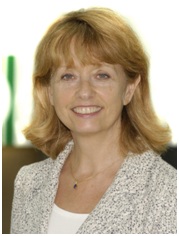 Martine Durand is the Chief Statistician and Director of the Organization for Economic Cooperation and Development (OECD) Statistics Directorate. She oversees the OECDÂ’'s statistical activities and is responsible for the work on the measurement of well-being and societal progress and the biennial flagship report HowÂ’s Life? Measuring Well Being, as part of the OECD Better Life Initiative. Prior to this position, she was Deputy Director of Employment, Labor, and Social Affairs at the OECD. She has authored numerous papers on well-being, labor markets, social policies, and international migration. She studied mathematics, statistics, and economics from Paris VI University, École Nationale de la Statistique et de L'Administration Eonomique, and the University of Wisconsin-Madison. Martine Durand is the Chief Statistician and Director of the Organization for Economic Cooperation and Development (OECD) Statistics Directorate. She oversees the OECDÂ’'s statistical activities and is responsible for the work on the measurement of well-being and societal progress and the biennial flagship report HowÂ’s Life? Measuring Well Being, as part of the OECD Better Life Initiative. Prior to this position, she was Deputy Director of Employment, Labor, and Social Affairs at the OECD. She has authored numerous papers on well-being, labor markets, social policies, and international migration. She studied mathematics, statistics, and economics from Paris VI University, École Nationale de la Statistique et de L'Administration Eonomique, and the University of Wisconsin-Madison.
Presentation by Martine Durand
Economists use a wide range of tools and information to understand short-term economic activity. Short-term indicators give a synthetic picture of the macroeconomic situation in the recent past. They are often augmented by the economic survey data. In combination, these data are used to anticipate the turning points in business cycles, for nowcasting, and forecasting. In addition, survey data are often used to assess recent macroeconomic developments and as inputs into monetary policy and business decisions. This session will focus on such important issues as (i) timeliness, reliability, and comparability of the short-term indicators and survey data across countries; (ii) advantages and disadvantages of survey data in comparison to the short-term indicators; and (iii) use of short-term indicators and survey data for policy analysis and forecasting.
Key questions:
- What are the short-term indicators and forward-looking indicators that are routinely used for macroeconomic analysis? To what extent are such indicators essential?
- What and how are survey data being used to augment short-term indicators to help policy and business decision making? What role do survey data play in designing and implementing macroeconomic policies?
- Are there any new techniques that could be effectively employed in efficiently using the short-term indicators for economic analyses?
Chair: Antoinette Sayeh, Director, African Department, IMF
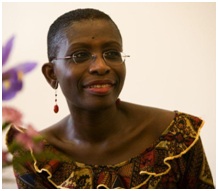 Antoinette Monsio Sayeh assumed her current position as Director of the African Department of the International Monetary Fund in July 2008. As Minister of Finance in post-conflict Liberia (January 2006 through June 2008) she led the country through the clearance of its long-standing multilateral debt arrears, the HIPC Decision Point, the Paris Club, and its first Poverty Reduction Strategy, significantly strengthening its public finances and championing public financial management reform. Before joining President Ellen Johnson SirleafÂ’'s Cabinet, Ms. Sayeh worked for the World Bank for 17 years, including as Country Director for Benin, Niger, and Togo; Senior Country Economist on Pakistan and Afghanistan; Advisor in the BankÂ’'s Operations Policy Vice Presidency; as Assistant to its principal Managing Director. Before joining the Bank, Ms. Sayeh worked in economic advisory positions in LiberiaÂ’'s Ministries of Finance and Planning. Ms. Sayeh graduated with a bachelor'Â’s degree with honors in economics from Swarthmore College and a Ph.D in International Economic Relations from the Fletcher School at Tufts University. Antoinette Monsio Sayeh assumed her current position as Director of the African Department of the International Monetary Fund in July 2008. As Minister of Finance in post-conflict Liberia (January 2006 through June 2008) she led the country through the clearance of its long-standing multilateral debt arrears, the HIPC Decision Point, the Paris Club, and its first Poverty Reduction Strategy, significantly strengthening its public finances and championing public financial management reform. Before joining President Ellen Johnson SirleafÂ’'s Cabinet, Ms. Sayeh worked for the World Bank for 17 years, including as Country Director for Benin, Niger, and Togo; Senior Country Economist on Pakistan and Afghanistan; Advisor in the BankÂ’'s Operations Policy Vice Presidency; as Assistant to its principal Managing Director. Before joining the Bank, Ms. Sayeh worked in economic advisory positions in LiberiaÂ’'s Ministries of Finance and Planning. Ms. Sayeh graduated with a bachelor'Â’s degree with honors in economics from Swarthmore College and a Ph.D in International Economic Relations from the Fletcher School at Tufts University.
Discussant: Shaida Badiee, Managing Director and Co-Founder, Open Data Watch, Inc., and former Director of Development Data Group, World Bank
 Shaida Badiee is Managing Director of Open Data Watch, an international NGO that monitors progress and provides information and assistance on implementing open data systems. She is an advisor to the Data2X project on closing gender data gaps and a member of the United Nations Secretary-GeneralÂ’'s Independent Expert Advisory Group on the Data Revolution. Earlier, she played a key role in the creation of PARIS21 and led efforts to support statistic capacity building through international initiatives like the Marrakech Action Plan. In 2010, capping her long tenure as Director of the World BankÂ’'s Development Data Group, she led the Open Data Initiative, a ground-breaking program to provide full and free access to the World BankÂ’'s extensive statistical databases. Shaida Badiee is Managing Director of Open Data Watch, an international NGO that monitors progress and provides information and assistance on implementing open data systems. She is an advisor to the Data2X project on closing gender data gaps and a member of the United Nations Secretary-GeneralÂ’'s Independent Expert Advisory Group on the Data Revolution. Earlier, she played a key role in the creation of PARIS21 and led efforts to support statistic capacity building through international initiatives like the Marrakech Action Plan. In 2010, capping her long tenure as Director of the World BankÂ’'s Development Data Group, she led the Open Data Initiative, a ground-breaking program to provide full and free access to the World BankÂ’'s extensive statistical databases.
Discussant: Ian Ewing, Deputy Australian Statistician, Australian Bureau of Statistics
 Ian Ewing is the Deputy Australian Statistician for the Economic and Environment Statistics Group at the Australian Bureau of Statistics (ABS). Ewing was New South Wales Regional Director from June 2006– to October 2007. He joined Statistics New Zealand in 1980 as a research officer following 18 months of working in the New Zealand Treasury. Ewing has worked principally in business and economic and agricultural statistics, where he has played a major role in shaping statistical strategies and work programs. Prior to coming to the ABS, he was Deputy Government Statistician at Statistics New Zealand, responsible for macroeconomic, regional, and environment statistics. Ewing has an MA from the University of Auckland. Ian Ewing is the Deputy Australian Statistician for the Economic and Environment Statistics Group at the Australian Bureau of Statistics (ABS). Ewing was New South Wales Regional Director from June 2006– to October 2007. He joined Statistics New Zealand in 1980 as a research officer following 18 months of working in the New Zealand Treasury. Ewing has worked principally in business and economic and agricultural statistics, where he has played a major role in shaping statistical strategies and work programs. Prior to coming to the ABS, he was Deputy Government Statistician at Statistics New Zealand, responsible for macroeconomic, regional, and environment statistics. Ewing has an MA from the University of Auckland.
Commentary by Ian Ewing
Discussant: Uzziel Ndagijimana, Minister of State in charge of Economic Planning, Ministry of Finance and Economic Planning, Rwanda
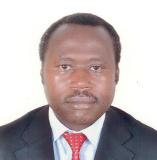 Uzziel Ndagijimana is the Minister of State in charge of Economic Planning in the Ministry of Finance and Economic Planning (MINECOFIN). Before joining the MINECOFIN, Ndagijimana was the Permanent Secretary of the Ministry of Health from May 2011–July 2014. Ndagijimana served at different leadership positions as the Vice Rector of the National University of Rwanda (2007–11) and as the Rector of School of Finance and Banking in Kigali (2002–07). Ndagijimana is an Economist, holding a PhD in Economics and a MSc. Economics, with specialization in International Trade. He started his career as a lecturer at the National University of Rwanda (1999) before moving on to leadership positions of the government of Rwanda (from 2002). He has served in various Boards of Directors and councils and authored various papers in national and international journals. He speaks Kinyarwanda, French, English, Swahili, Polish, and basic Portuguese. Uzziel Ndagijimana is the Minister of State in charge of Economic Planning in the Ministry of Finance and Economic Planning (MINECOFIN). Before joining the MINECOFIN, Ndagijimana was the Permanent Secretary of the Ministry of Health from May 2011–July 2014. Ndagijimana served at different leadership positions as the Vice Rector of the National University of Rwanda (2007–11) and as the Rector of School of Finance and Banking in Kigali (2002–07). Ndagijimana is an Economist, holding a PhD in Economics and a MSc. Economics, with specialization in International Trade. He started his career as a lecturer at the National University of Rwanda (1999) before moving on to leadership positions of the government of Rwanda (from 2002). He has served in various Boards of Directors and councils and authored various papers in national and international journals. He speaks Kinyarwanda, French, English, Swahili, Polish, and basic Portuguese.
Presentation by Uzziel Ndagijimana
|
| 3:45 p.m. |
Coffee Break and Exhibition Visit (Atrium) |
| 4:00 p.m. |
Session IV
Real Estate Prices—–Availability, Importance, and New Developments
Robert Shiller, Sterling Professor of Economics, Yale University
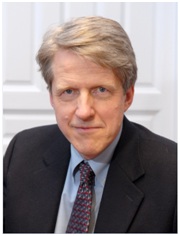 Robert J. Shiller is Sterling Professor of Economics, Department of Economics and Cowles Foundation for Research in Economics, Yale University, and Professor of Finance and Fellow at the International Center for Finance, Yale School of Management. He received his B.A. from the University of Michigan in 1967 and his Ph.D in economics from MIT in 1972. He has written on financial markets, financial innovation, behavioral economics, macroeconomics, real estate, statistical methods, and on public attitudes, opinions, and moral judgments regarding markets. Shiller was awarded the 2013 Nobel Prize in Economic Sciences, together with Eugene Fama and Lars Peter Hansen of the University of Chicago, “for their empirical analysis of asset prices.” He is President-elect of the American Economic Association. His repeat-sales home price indices, developed originally with Karl E. Case, are now published as the S&P/Case-Shiller Home Price Indices. The Chicago Mercantile Exchange now maintains futures markets based on the S&P/Case-Shiller Indices. He has been research associate at the NBER since 1980, and has been co-organizer of NBER workshops: on behavioral finance with Richard Thaler since 1991, and on macroeconomics and individual decision-making (behavioral macroeconomics) with George Akerlof since 1994. He writes a regular column "Finance in the 21st Century" for Project Syndicate, published around the world, and “Economic View” for The New York Times. Robert J. Shiller is Sterling Professor of Economics, Department of Economics and Cowles Foundation for Research in Economics, Yale University, and Professor of Finance and Fellow at the International Center for Finance, Yale School of Management. He received his B.A. from the University of Michigan in 1967 and his Ph.D in economics from MIT in 1972. He has written on financial markets, financial innovation, behavioral economics, macroeconomics, real estate, statistical methods, and on public attitudes, opinions, and moral judgments regarding markets. Shiller was awarded the 2013 Nobel Prize in Economic Sciences, together with Eugene Fama and Lars Peter Hansen of the University of Chicago, “for their empirical analysis of asset prices.” He is President-elect of the American Economic Association. His repeat-sales home price indices, developed originally with Karl E. Case, are now published as the S&P/Case-Shiller Home Price Indices. The Chicago Mercantile Exchange now maintains futures markets based on the S&P/Case-Shiller Indices. He has been research associate at the NBER since 1980, and has been co-organizer of NBER workshops: on behavioral finance with Richard Thaler since 1991, and on macroeconomics and individual decision-making (behavioral macroeconomics) with George Akerlof since 1994. He writes a regular column "Finance in the 21st Century" for Project Syndicate, published around the world, and “Economic View” for The New York Times.
Presentation by Robert Shiller
Mick Silver, Principal Statistical Methodologist, Statistics Department, IMF
 Mick Silver is Principal Statistical Methodologist, Statistics Department, International Monetary Fund. Previous posts include Professor of Economic Statistics, Cardiff University and ASA/NSF Senior Research Fellow at the US Bureau of Labor Statistics. Long-standing practical and research interest in price index measurement. Contributed chapters to the ILO Consumer Price Index Manual 2004, IMF Producer Price Index Manual, 2004, SNA 1993, 2008 SNA, the World BankÂ’s ICP Handbooks 2005 and 2011, and editor of, and contributor to, the Export and Import Price Index Manual (IMF, 2009). Publications include the Journal of Political Economy, Journal of Econometrics, Journal of Business and Economic Statistics, Economic Journal, IMF Staff Papers and chapters in NBER books. Much country experience undertaking technical assistance and training on price indexes. Served as member and chair of international working and technical expert groups on price statistics. Current interest is real estate property price indexes. Mick Silver is Principal Statistical Methodologist, Statistics Department, International Monetary Fund. Previous posts include Professor of Economic Statistics, Cardiff University and ASA/NSF Senior Research Fellow at the US Bureau of Labor Statistics. Long-standing practical and research interest in price index measurement. Contributed chapters to the ILO Consumer Price Index Manual 2004, IMF Producer Price Index Manual, 2004, SNA 1993, 2008 SNA, the World BankÂ’s ICP Handbooks 2005 and 2011, and editor of, and contributor to, the Export and Import Price Index Manual (IMF, 2009). Publications include the Journal of Political Economy, Journal of Econometrics, Journal of Business and Economic Statistics, Economic Journal, IMF Staff Papers and chapters in NBER books. Much country experience undertaking technical assistance and training on price indexes. Served as member and chair of international working and technical expert groups on price statistics. Current interest is real estate property price indexes.
Paper and Presentation by Mick Silver
Real estate price indices are important financial soundness and early warning indicators. Indeed, unjustifiably sharp growth in real estate prices in the developed countries was one of the triggers of the recent global financial crisis. There has been much progress on the methodological front, including the publication of international standards on measurement and a substantial increase in the dissemination of these indices by agencies that include the BIS, ECB, Eurostat, and IMF. Despite this, many countries still do not collect any information on real estate markets; whereas others have at their disposal a feast of several real estate price indices derived by different, often private, organizations based on differing methodologies, which have issues with coverage and timeliness. This session will focus on methodological and practical issues related to the compilation and the use of real estate price indices for macroeconomic analysis and policymaking.
Chair: Prakash Loungani, Advisor, Research Department, IMF
 Prakash Loungani is Advisor in the IMF’s Research Department. He currently supervises the work on the IMF’s Global Housing Watch, which has received attention recently in policy and media circles. He is the author, with Deniz Igan, of work on Global Housing Cycles and the co-editor of a forthcoming special issue of the Journal of Money, Credit, and Banking on housing issues. He is also an adjunct Professor of Management at Vanderbilt University’s Owen School of Business, where he has taught for 15 years. He has nearly 30 years of job experience at the IMF, the U.S. Federal Reserve System, and the University of Florida. Prakash Loungani is Advisor in the IMF’s Research Department. He currently supervises the work on the IMF’s Global Housing Watch, which has received attention recently in policy and media circles. He is the author, with Deniz Igan, of work on Global Housing Cycles and the co-editor of a forthcoming special issue of the Journal of Money, Credit, and Banking on housing issues. He is also an adjunct Professor of Management at Vanderbilt University’s Owen School of Business, where he has taught for 15 years. He has nearly 30 years of job experience at the IMF, the U.S. Federal Reserve System, and the University of Florida.
Discussant: David Geltner, Professor, Department of Urban Studies, Center for Real Estate, Massachusetts Institute of Technology
 David Geltner is Professor of Real Estate Finance in the MIT Department of Urban Studies with a joint appointment in Engineering Systems. He is the lead author of the most widely-cited real estate investments textbook, Commercial Real Estate Analysis & Investments. Recipient of the prestigious Graaskamp Award for excellence and influence in real estate investment research awarded by the Pension Real Estate Association, Geltner has served as Academic Advisor to the National Council of Real Estate Investment Fiduciaries, and as Director of MITÂ’s Commercial Real Estate Data Laboratory, which has pioneered commercial property price indices. David Geltner is Professor of Real Estate Finance in the MIT Department of Urban Studies with a joint appointment in Engineering Systems. He is the lead author of the most widely-cited real estate investments textbook, Commercial Real Estate Analysis & Investments. Recipient of the prestigious Graaskamp Award for excellence and influence in real estate investment research awarded by the Pension Real Estate Association, Geltner has served as Academic Advisor to the National Council of Real Estate Investment Fiduciaries, and as Director of MITÂ’s Commercial Real Estate Data Laboratory, which has pioneered commercial property price indices.
Presentation by David Geltner
Discussant: Mark Fleming, Chief Economist, First American
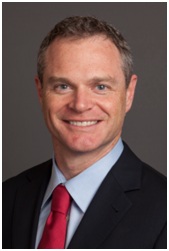 Mark Fleming is chief economist for CoreLogic, AmericaÂ’s largest provider of advanced property and ownership information, analytics, and services. He leads the economics team responsible for analysis, commentary, and forecasting trends in the real estate and mortgage markets. FlemingÂ’s research interests primarily include real estate and urban economics, applied econometrics, and mortgage risk. He has published research in the American Journal of Agricultural Economics and Geographic Information Sciences, is published in the book, Advances in Spatial Econometrics, and is a US patent author. He is frequently quoted by national news outlets and industry trade publications, such as The Wall Street Journal, New York Times, and Housing Wire, and is a regular guest on news channels such as CBS, CNBC, Fox Business News, and NPR. Mark has more than 15 yearsÂ’ experience in the mortgage and property information business. Before joining CoreLogic, he developed property valuation models at Fannie Mae for use in mortgage origination, quality control, and loss mitigation. Mark graduated from the University of Maryland with a master of science and a doctorate in agricultural and resource economics and holds a bachelor of arts in economics from Swarthmore College. He lives and works in the Washington D.C. area. Mark Fleming is chief economist for CoreLogic, AmericaÂ’s largest provider of advanced property and ownership information, analytics, and services. He leads the economics team responsible for analysis, commentary, and forecasting trends in the real estate and mortgage markets. FlemingÂ’s research interests primarily include real estate and urban economics, applied econometrics, and mortgage risk. He has published research in the American Journal of Agricultural Economics and Geographic Information Sciences, is published in the book, Advances in Spatial Econometrics, and is a US patent author. He is frequently quoted by national news outlets and industry trade publications, such as The Wall Street Journal, New York Times, and Housing Wire, and is a regular guest on news channels such as CBS, CNBC, Fox Business News, and NPR. Mark has more than 15 yearsÂ’ experience in the mortgage and property information business. Before joining CoreLogic, he developed property valuation models at Fannie Mae for use in mortgage origination, quality control, and loss mitigation. Mark graduated from the University of Maryland with a master of science and a doctorate in agricultural and resource economics and holds a bachelor of arts in economics from Swarthmore College. He lives and works in the Washington D.C. area.
Presentation by Mark Fleming
Discussant: Chihiro Shimizu, Professor, Department of Economics, Reitaku University
 Chihiro Shimizu is Professor of Economics at Reitaku University. He is also visiting professor at University of British Columbia, University of Hong Kong, and National University of Singapore. His background is in spatial econometrics and index theory. He serves as a member of various advisory committees for the Japanese government about various issues such as official statistics and macroeconomic policy. He has chaired the advisory board committee on property price indexes of the Japanese government since 2009. Chihiro Shimizu is Professor of Economics at Reitaku University. He is also visiting professor at University of British Columbia, University of Hong Kong, and National University of Singapore. His background is in spatial econometrics and index theory. He serves as a member of various advisory committees for the Japanese government about various issues such as official statistics and macroeconomic policy. He has chaired the advisory board committee on property price indexes of the Japanese government since 2009.
Presentation by Chihiro Shimizu
Closing Remarks: Robert Shiller, Sterling Professor of Economics, Yale University
 Robert J. Shiller is Sterling Professor of Economics, Department of Economics and Cowles Foundation for Research in Economics, Yale University, and Professor of Finance and Fellow at the International Center for Finance, Yale School of Management. He received his B.A. from the University of Michigan in 1967 and his Ph.D in economics from MIT in 1972. He has written on financial markets, financial innovation, behavioral economics, macroeconomics, real estate, statistical methods, and on public attitudes, opinions, and moral judgments regarding markets. Shiller was awarded the 2013 Nobel Prize in Economic Sciences, together with Eugene Fama and Lars Peter Hansen of the University of Chicago, “for their empirical analysis of asset prices.” He is President-elect of the American Economic Association. His repeat-sales home price indices, developed originally with Karl E. Case, are now published as the S&P/Case-Shiller Home Price Indices. The Chicago Mercantile Exchange now maintains futures markets based on the S&P/Case-Shiller Indices. He has been research associate at the NBER since 1980, and has been co-organizer of NBER workshops: on behavioral finance with Richard Thaler since 1991, and on macroeconomics and individual decision-making (behavioral macroeconomics) with George Akerlof since 1994. He writes a regular column “Finance in the 21st Century” for Project Syndicate, published around the world, and “Economic View” for The New York Times. Robert J. Shiller is Sterling Professor of Economics, Department of Economics and Cowles Foundation for Research in Economics, Yale University, and Professor of Finance and Fellow at the International Center for Finance, Yale School of Management. He received his B.A. from the University of Michigan in 1967 and his Ph.D in economics from MIT in 1972. He has written on financial markets, financial innovation, behavioral economics, macroeconomics, real estate, statistical methods, and on public attitudes, opinions, and moral judgments regarding markets. Shiller was awarded the 2013 Nobel Prize in Economic Sciences, together with Eugene Fama and Lars Peter Hansen of the University of Chicago, “for their empirical analysis of asset prices.” He is President-elect of the American Economic Association. His repeat-sales home price indices, developed originally with Karl E. Case, are now published as the S&P/Case-Shiller Home Price Indices. The Chicago Mercantile Exchange now maintains futures markets based on the S&P/Case-Shiller Indices. He has been research associate at the NBER since 1980, and has been co-organizer of NBER workshops: on behavioral finance with Richard Thaler since 1991, and on macroeconomics and individual decision-making (behavioral macroeconomics) with George Akerlof since 1994. He writes a regular column “Finance in the 21st Century” for Project Syndicate, published around the world, and “Economic View” for The New York Times.
|
| 6:00 p.m. |
Cocktail Reception (Conference Hall 2) |
November 19, 2014 |
| 8:30 a.m. |
Continental Breakfast (Conference Hall 1) and Exhibition Visit (Atrium) from 8:30a.m. |
| 9:30 a.m. |
Panel Discussion on Data Quality and Evidence-Based Policymaking
Chair: Louis Marc Ducharme, Director, Statistics Department, IMF
 Louis Marc Ducharme was appointed Director of the IMFÂ’s Statistics Department on June 17, 2013. Before joining the IMF, he spent 30 years at Statistics Canada where he held various positions in the areas of economic statistics. His last tenure was Assistant Chief Statistician responsible for all economic statistics. During his career, he provided extensive technical assistance to a number of countries in Latin America. He also taught macroeconomics at the Graduate School of Public and International Affairs at the University of Ottawa. He has a Ph.D in economics and science policy from the University of Sussex, United Kingdom, and both a masterÂ’s and bachelorÂ’s degree in economics from the University of Montreal in Canada. Louis Marc Ducharme was appointed Director of the IMFÂ’s Statistics Department on June 17, 2013. Before joining the IMF, he spent 30 years at Statistics Canada where he held various positions in the areas of economic statistics. His last tenure was Assistant Chief Statistician responsible for all economic statistics. During his career, he provided extensive technical assistance to a number of countries in Latin America. He also taught macroeconomics at the Graduate School of Public and International Affairs at the University of Ottawa. He has a Ph.D in economics and science policy from the University of Sussex, United Kingdom, and both a masterÂ’s and bachelorÂ’s degree in economics from the University of Montreal in Canada.
Participant: Willem Buiter, Global Chief Economist, Citigroup
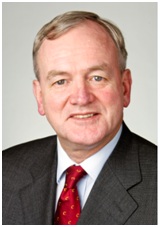 Willem Buiter joined Citi in January 2010 as Chief Economist. One of the worldÂ’s most distinguished macro economists, Buiter was previously Professor of Political Economy at the London School of Economics and is a widely published author on economic affairs in books, professional journals, and the press. Between 2005 and 2010, he was an advisor to Goldman Sachs, advising clients on a global basis. Prior to this, he was Chief Economist for the European Bank for Reconstruction & Development (between 2000 and 2005) and a founder and external member of the Monetary Policy Committee of the Bank of England (1997––2000). Buiter has been a consultant to the IMF, World Bank, Inter-American Development Bank, Asian Development Bank, and European Commission, and an advisor to many central banks and finance ministries. Buiter has held a number of other leading academic positions, including Cassel Professor of Money & Banking at the LSE (between 1982 and 1984), Professorships in Economics at Yale University in the US (between 1985 and 1994), and Professor of International Macroeconomics at Cambridge University in the UK (between 1994 and 2000). Willem has a B.A. in Economics from Cambridge University and a Ph.D in Economics from Yale University. He has been a member of the British Academy since 1998 and was awarded the Commander of the Order of the British Empire (CBE) in 2000 for services to economics. Willem Buiter joined Citi in January 2010 as Chief Economist. One of the worldÂ’s most distinguished macro economists, Buiter was previously Professor of Political Economy at the London School of Economics and is a widely published author on economic affairs in books, professional journals, and the press. Between 2005 and 2010, he was an advisor to Goldman Sachs, advising clients on a global basis. Prior to this, he was Chief Economist for the European Bank for Reconstruction & Development (between 2000 and 2005) and a founder and external member of the Monetary Policy Committee of the Bank of England (1997––2000). Buiter has been a consultant to the IMF, World Bank, Inter-American Development Bank, Asian Development Bank, and European Commission, and an advisor to many central banks and finance ministries. Buiter has held a number of other leading academic positions, including Cassel Professor of Money & Banking at the LSE (between 1982 and 1984), Professorships in Economics at Yale University in the US (between 1985 and 1994), and Professor of International Macroeconomics at Cambridge University in the UK (between 1994 and 2000). Willem has a B.A. in Economics from Cambridge University and a Ph.D in Economics from Yale University. He has been a member of the British Academy since 1998 and was awarded the Commander of the Order of the British Empire (CBE) in 2000 for services to economics.
Participant: Rudi Acx, Head, Statistics Department, National Bank of Belgium
 Rudi Acx holds a doctorÂ’s degree in Economics, and is Statistics Director at the National Bank of Belgium. He is visiting professor at KU Leuven and participates in different statistical committees within the European System of Central Banks and the European Statistical System. He is also a member of the International Statistical Institute (ISI) and an Honorary Member of Irving Fisher Committee on Central Bank Statistics. He currently works mainly on national and financial accounts, public finance, integration of macroeconomic statistics, and communication on statistics. Rudi Acx holds a doctorÂ’s degree in Economics, and is Statistics Director at the National Bank of Belgium. He is visiting professor at KU Leuven and participates in different statistical committees within the European System of Central Banks and the European Statistical System. He is also a member of the International Statistical Institute (ISI) and an Honorary Member of Irving Fisher Committee on Central Bank Statistics. He currently works mainly on national and financial accounts, public finance, integration of macroeconomic statistics, and communication on statistics.
Presentation by Rudi Acx
Participant: Ivan Fellegi, Chief Statistician of Canada Emeritus, Statistics Canada
 Ivan P. Fellegi is Chief Statistician of Canada Emeritus. Between 1985 and 2008, he was head of what is ranked by The Economist as the best statistical office in the world. Other positions he has held: chair of the Conference of European Statisticians of the United Nations Economic Commission for Europe (1993–97); President of the International Statistical Institute, the International Association of Survey Statisticians, and the Statistical Society of Canada; chair of the Board of Governors, Carleton University (1995–97); and Officer, Order of Canada. His many achievements: recipient of the Outstanding Achievement Award of the Public Service of Canada; the Order of Merit of the Hungarian Republic; the Career Achievement Award of the Canadian Policy Research Initiative; La Médaille de la Ville de Paris; Member of the Hungarian Academy of Sciences; Gold Medal by the Statistical Society of Canada; and the Robert Schuman medal of the European Community. He holds honorary doctorates from Université de Montréal, Université du Québec (Institut national de la recherche scientifique), Simon Fraser University, McMaster University, and Carleton University; and is an Honorary Member of the ISI, and Honorary Fellow of the Royal Statistical Society. He has published extensively on statistical methods, on the social and economic applications of statistics, and on the successful management of statistical agencies. Ivan P. Fellegi is Chief Statistician of Canada Emeritus. Between 1985 and 2008, he was head of what is ranked by The Economist as the best statistical office in the world. Other positions he has held: chair of the Conference of European Statisticians of the United Nations Economic Commission for Europe (1993–97); President of the International Statistical Institute, the International Association of Survey Statisticians, and the Statistical Society of Canada; chair of the Board of Governors, Carleton University (1995–97); and Officer, Order of Canada. His many achievements: recipient of the Outstanding Achievement Award of the Public Service of Canada; the Order of Merit of the Hungarian Republic; the Career Achievement Award of the Canadian Policy Research Initiative; La Médaille de la Ville de Paris; Member of the Hungarian Academy of Sciences; Gold Medal by the Statistical Society of Canada; and the Robert Schuman medal of the European Community. He holds honorary doctorates from Université de Montréal, Université du Québec (Institut national de la recherche scientifique), Simon Fraser University, McMaster University, and Carleton University; and is an Honorary Member of the ISI, and Honorary Fellow of the Royal Statistical Society. He has published extensively on statistical methods, on the social and economic applications of statistics, and on the successful management of statistical agencies.
Presentation by Ivan Fellegi
Participant: Masood Ahmed, Director, Middle East and Central Asia Department, IMF
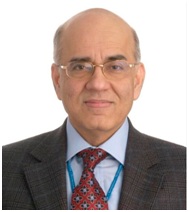 Masood Ahmed has been Director of the Middle East and Central Asia Department since November 2008. He obtained his graduate and post-graduate degrees in Economics from the London School of Economics, where he also served on the economics faculty. He was born and brought up in Pakistan. Mr. Ahmed has previously held senior positions in the UK governmentÂ’s Department for International Development (DFID) where he served as Director General for Policy and International Development, and in the World Bank where he was Vice President for Poverty Reduction and Economic Management. He was Director of the IMFÂ’s External Relations Department before taking up his current role. Masood Ahmed has been Director of the Middle East and Central Asia Department since November 2008. He obtained his graduate and post-graduate degrees in Economics from the London School of Economics, where he also served on the economics faculty. He was born and brought up in Pakistan. Mr. Ahmed has previously held senior positions in the UK governmentÂ’s Department for International Development (DFID) where he served as Director General for Policy and International Development, and in the World Bank where he was Vice President for Poverty Reduction and Economic Management. He was Director of the IMFÂ’s External Relations Department before taking up his current role.
|
| 10:45 a.m. |
Coffee Break and Exhibition Visit (Atrium) |
| 11:00 a.m. |
Round Table Discussion on Economic Statistics: Agenda for the Future
The conclusions on sessions on vulnerabilities, short-term indicators, big data, real estate prices, and data quality issues will indicate directions for future work in official statistics. Do those conclusions indicate that statisticians are keeping up with new economic developments or falling behind? What other emerging issues will bring demands for new statistical work? What existing work can be cut back to provide resources for new areas? Can we suggest possibilities for what may be coming "out of left field" in the future?
Chair: Min Zhu, Deputy Managing Director, IMF
 Min Zhu assumed the position of Deputy Managing Director on July 26, 2011. Previously, he served as Special Advisor to the Managing Director of the International Monetary Fund from May 3, 2010 to July 25, 2011. Zhu, a native of China, was a Deputy Governor of the PeopleÂ’s Bank of China. He was responsible for international affairs, policy research, and credit information. Prior to his service at ChinaÂ’s central bank, he held various positions at the Bank of China where he served as Group Executive Vice president, responsible for finance and treasury, risk management, internal control, legal and compliance, and strategy and research. Zhu also worked at the World Bank and taught economics at both Johns Hopkins University and Fudan University. Zhu received a Ph.D and an M.A. in economics from Johns Hopkins University, an M.P.A. from the Woodrow Wilson School of Public and International Affairs at Princeton University, and a B.A. in economics from Fudan University. Min Zhu assumed the position of Deputy Managing Director on July 26, 2011. Previously, he served as Special Advisor to the Managing Director of the International Monetary Fund from May 3, 2010 to July 25, 2011. Zhu, a native of China, was a Deputy Governor of the PeopleÂ’s Bank of China. He was responsible for international affairs, policy research, and credit information. Prior to his service at ChinaÂ’s central bank, he held various positions at the Bank of China where he served as Group Executive Vice president, responsible for finance and treasury, risk management, internal control, legal and compliance, and strategy and research. Zhu also worked at the World Bank and taught economics at both Johns Hopkins University and Fudan University. Zhu received a Ph.D and an M.A. in economics from Johns Hopkins University, an M.P.A. from the Woodrow Wilson School of Public and International Affairs at Princeton University, and a B.A. in economics from Fudan University.
Participant: Richard Berner, Director, Office of Financial Research (OFR), U.S. Treasury
 Richard Berner has served as Director of the Office of Financial Research since January 2013. In this capacity, he leads the office that serves the Financial Stability Oversight Council, its member agencies, and the public by improving the quality, transparency, and accessibility of financial data and information by conducting and sponsoring research related to financial stability, and by promoting best practices in risk management. Berner previously served as Counselor to the Secretary of the Treasury. Before joining the Treasury, he was Co-Head of Global Economics at Morgan Stanley. He has also worked at Mellon Bank, Salomon Brothers, Morgan Guaranty Trust Company, Wharton Econometrics, and the Federal Reserve Board. Berner received his BachelorÂ’s degree from Harvard College and Ph.D. from the University of Pennsylvania. Richard Berner has served as Director of the Office of Financial Research since January 2013. In this capacity, he leads the office that serves the Financial Stability Oversight Council, its member agencies, and the public by improving the quality, transparency, and accessibility of financial data and information by conducting and sponsoring research related to financial stability, and by promoting best practices in risk management. Berner previously served as Counselor to the Secretary of the Treasury. Before joining the Treasury, he was Co-Head of Global Economics at Morgan Stanley. He has also worked at Mellon Bank, Salomon Brothers, Morgan Guaranty Trust Company, Wharton Econometrics, and the Federal Reserve Board. Berner received his BachelorÂ’s degree from Harvard College and Ph.D. from the University of Pennsylvania.
Participant: Willem Buiter, Global Chief Economist, Citigroup
 Willem Buiter joined Citi in January 2010 as Chief Economist. One of the worldÂ’s most distinguished macro economists, Buiter was previously Professor of Political Economy at the London School of Economics and is a widely published author on economic affairs in books, professional journals, and the press. Between 2005 and 2010, he was an advisor to Goldman Sachs, advising clients on a global basis. Prior to this, he was Chief Economist for the European Bank for Reconstruction & Development (between 2000 and 2005) and a founder and external member of the Monetary Policy Committee of the Bank of England (1997––2000). Buiter has been a consultant to the IMF, World Bank, Inter-American Development Bank, Asian Development Bank, and European Commission, and an advisor to many central banks and finance ministries. Buiter has held a number of other leading academic positions, including Cassel Professor of Money & Banking at the LSE (between 1982 and 1984), Professorships in Economics at Yale University in the US (between 1985 and 1994), and Professor of International Macroeconomics at Cambridge University in the UK (between 1994 and 2000). Willem has a B.A. in Economics from Cambridge University and a Ph.D in Economics from Yale University. He has been a member of the British Academy since 1998 and was awarded the Commander of the Order of the British Empire (CBE) in 2000 for services to economics. Willem Buiter joined Citi in January 2010 as Chief Economist. One of the worldÂ’s most distinguished macro economists, Buiter was previously Professor of Political Economy at the London School of Economics and is a widely published author on economic affairs in books, professional journals, and the press. Between 2005 and 2010, he was an advisor to Goldman Sachs, advising clients on a global basis. Prior to this, he was Chief Economist for the European Bank for Reconstruction & Development (between 2000 and 2005) and a founder and external member of the Monetary Policy Committee of the Bank of England (1997––2000). Buiter has been a consultant to the IMF, World Bank, Inter-American Development Bank, Asian Development Bank, and European Commission, and an advisor to many central banks and finance ministries. Buiter has held a number of other leading academic positions, including Cassel Professor of Money & Banking at the LSE (between 1982 and 1984), Professorships in Economics at Yale University in the US (between 1985 and 1994), and Professor of International Macroeconomics at Cambridge University in the UK (between 1994 and 2000). Willem has a B.A. in Economics from Cambridge University and a Ph.D in Economics from Yale University. He has been a member of the British Academy since 1998 and was awarded the Commander of the Order of the British Empire (CBE) in 2000 for services to economics.
Participant: Martine Durand, Chief Statistician and Director of Statistics Directorate, OECD
 Martine Durand is the Chief Statistician and Director of the Organization for Economic Cooperation and Development (OECD) Statistics Directorate. She oversees the OECD’s statistical activities and is responsible for the work on the measurement of well-being and societal progress and the biennial flagship report How’s Life? Measuring Well Being, as part of the OECD Better Life Initiative. Prior to this position, she was Deputy Director of Employment, Labor, and Social Affairs at the OECD. She has authored numerous papers on well-being, labor markets, social policies, and international migration. She studied mathematics, statistics, and economics from Paris VI University, ȣole Nationale de la Statistique et de l’Administration ȣonomique, and the University of Wisconsin-Madison. Martine Durand is the Chief Statistician and Director of the Organization for Economic Cooperation and Development (OECD) Statistics Directorate. She oversees the OECD’s statistical activities and is responsible for the work on the measurement of well-being and societal progress and the biennial flagship report How’s Life? Measuring Well Being, as part of the OECD Better Life Initiative. Prior to this position, she was Deputy Director of Employment, Labor, and Social Affairs at the OECD. She has authored numerous papers on well-being, labor markets, social policies, and international migration. She studied mathematics, statistics, and economics from Paris VI University, ȣole Nationale de la Statistique et de l’Administration ȣonomique, and the University of Wisconsin-Madison.
Participant: Uzziel Ndagijimana, Minister of State in Charge of Economic Planning, Ministry of Finance and Economic Planning, Rwanda
 Uzziel Ndagijimana is the Minister of State in charge of Economic Planning in the Ministry of Finance and Economic Planning (MINECOFIN). Before joining the MINECOFIN, Ndagijimana was the Permanent Secretary of the Ministry of Health from May 2011–July 2014. Ndagijimana served at different leadership positions as the Vice Rector of the National University of Rwanda (2007–11) and as the Rector of School of Finance and Banking in Kigali (2002–07). Ndagijimana is an Economist, holding a PhD in Economics and a MSc. Economics, with specialization in International Trade. He started his career as a lecturer at the National University of Rwanda (1999) before moving on to leadership positions of the government of Rwanda (from 2002). He has served in various Boards of Directors and councils and authored various papers in national and international journals. He speaks Kinyarwanda, French, English, Swahili, Polish, and basic Portuguese. Uzziel Ndagijimana is the Minister of State in charge of Economic Planning in the Ministry of Finance and Economic Planning (MINECOFIN). Before joining the MINECOFIN, Ndagijimana was the Permanent Secretary of the Ministry of Health from May 2011–July 2014. Ndagijimana served at different leadership positions as the Vice Rector of the National University of Rwanda (2007–11) and as the Rector of School of Finance and Banking in Kigali (2002–07). Ndagijimana is an Economist, holding a PhD in Economics and a MSc. Economics, with specialization in International Trade. He started his career as a lecturer at the National University of Rwanda (1999) before moving on to leadership positions of the government of Rwanda (from 2002). He has served in various Boards of Directors and councils and authored various papers in national and international journals. He speaks Kinyarwanda, French, English, Swahili, Polish, and basic Portuguese.
|
| 12:30 p.m. |
Closing Remarks
Robert Heath, Deputy Director, Statistics Department, IMF
Closing Remarks and Presentation by Robert Heath
 Robert Heath is a Deputy Director in the IMF Statistics Department. He oversees the development of methodological standards, including the BPM6, the External Debt Guide, Government Finance Statistics Manual, and the Monetary and Financial Statistics Manual and Compilation Guide. Closely involved in the G-20 Data Gaps Initiative, he published a working paper on “Why are the G-20 Data Gaps Initiative and the SDDS Plus Relevant for Financial Stability Analysis†in early 2013. Before joining the IMF's Statistics Department, Robert worked at the Bank of England and the UK Treasury. Robert Heath is a Deputy Director in the IMF Statistics Department. He oversees the development of methodological standards, including the BPM6, the External Debt Guide, Government Finance Statistics Manual, and the Monetary and Financial Statistics Manual and Compilation Guide. Closely involved in the G-20 Data Gaps Initiative, he published a working paper on “Why are the G-20 Data Gaps Initiative and the SDDS Plus Relevant for Financial Stability Analysis†in early 2013. Before joining the IMF's Statistics Department, Robert worked at the Bank of England and the UK Treasury.
|
The website contains papers and web links to papers that will be presented at the Second IMF Statistical Forum. The views expressed in these papers and presentations are those of the authors only, and the presence of them, or of links to them, on the IMF website does not imply that the IMF, its Executive Board, or its management endorses or shares the views expressed in the papers.




 Louis Marc Ducharme was appointed Director of the IMFÂ’'s Statistics Department on June 17, 2013. Before joining the IMF, he spent 30 years at Statistics Canada where he held various positions in the areas of economic statistics. His last tenure was Assistant Chief Statistician responsible for all economic statistics. During his career, he provided extensive technical assistance to a number of countries in Latin America. He also taught macroeconomics at the Graduate School of Public and International Affairs at the University of Ottawa. He has a Ph.D in Economics and Science Policy from the University of Sussex, United Kingdom, and both a masterÂ’s and bachelorÂ’s degree in economics from the University of Montreal in Canada.
Louis Marc Ducharme was appointed Director of the IMFÂ’'s Statistics Department on June 17, 2013. Before joining the IMF, he spent 30 years at Statistics Canada where he held various positions in the areas of economic statistics. His last tenure was Assistant Chief Statistician responsible for all economic statistics. During his career, he provided extensive technical assistance to a number of countries in Latin America. He also taught macroeconomics at the Graduate School of Public and International Affairs at the University of Ottawa. He has a Ph.D in Economics and Science Policy from the University of Sussex, United Kingdom, and both a masterÂ’s and bachelorÂ’s degree in economics from the University of Montreal in Canada. Christine Lagarde is the eleventh Managing Director of the International Monetary Fund.
Christine Lagarde is the eleventh Managing Director of the International Monetary Fund.  Alan Greenspan served as chair of the Federal Reserve from 1987 to 2006, appointed by Presidents Reagan, Bush, Clinton, and Bush. He previously served as chair of President Ford’s Council of Economic Advisors. He received a B.S. (summa), M.A., and Ph.D. from New York University and honorary degrees from Harvard, Yale, Pennsylvania, Notre Dame, Leuven, and Edinburgh universities, as well as the Legion of Honor (France), Knight Commander of the British Empire, and the Medal of Freedom—the United States’ highest civil award.
Alan Greenspan served as chair of the Federal Reserve from 1987 to 2006, appointed by Presidents Reagan, Bush, Clinton, and Bush. He previously served as chair of President Ford’s Council of Economic Advisors. He received a B.S. (summa), M.A., and Ph.D. from New York University and honorary degrees from Harvard, Yale, Pennsylvania, Notre Dame, Leuven, and Edinburgh universities, as well as the Legion of Honor (France), Knight Commander of the British Empire, and the Medal of Freedom—the United States’ highest civil award. Richard Berner has served as Director of the Office of Financial Research since January 2013. In this capacity, he leads the office that serves the Financial Stability Oversight Council, its member agencies, and the public by improving the quality, transparency, and accessibility of financial data and information by conducting and sponsoring research related to financial stability, and by promoting best practices in risk management. Berner previously served as Counselor to the Secretary of the Treasury. Before joining the Treasury, he was Co-Head of Global Economics at Morgan Stanley. He has also worked at Mellon Bank, Salomon Brothers, Morgan Guaranty Trust Company, Wharton Econometrics, and the Federal Reserve Board. Berner received his Bachelor’s degree from Harvard College and Ph.D. from the University of Pennsylvania.
Richard Berner has served as Director of the Office of Financial Research since January 2013. In this capacity, he leads the office that serves the Financial Stability Oversight Council, its member agencies, and the public by improving the quality, transparency, and accessibility of financial data and information by conducting and sponsoring research related to financial stability, and by promoting best practices in risk management. Berner previously served as Counselor to the Secretary of the Treasury. Before joining the Treasury, he was Co-Head of Global Economics at Morgan Stanley. He has also worked at Mellon Bank, Salomon Brothers, Morgan Guaranty Trust Company, Wharton Econometrics, and the Federal Reserve Board. Berner received his BachelorÂ’s degree from Harvard College and Ph.D. from the University of Pennsylvania. Olivier Blanchard, a citizen of France, has spent his professional life in Cambridge, U.S. After obtaining his Ph.D in Economics at the Massachusetts Institute of Technology (MIT) in 1977, he taught at Harvard University, returning to MIT in 1982, where he has been since then. He is the Class of 1941 Professor of Economics, and past Chair of the Economics Department. He is currently on leave from MIT, as Economic Counselor and Director of the Research Department of the IMF. He is a macroeconomist, who has worked on a wide set of issues, from the role of monetary policy, to the nature of speculative bubbles, to the nature of the labor market and the determinants of unemployment, to transition in former communist countries. In the process, he has worked with numerous countries and international organizations. He is the author of many books and articles, including two textbooks in macroeconomics: one at the graduate level with Stanley Fischer, and one at the undergraduate level. He is a fellow and past Council member of the Econometric Society, a past vice president of the American Economic Association, and a member of the American Academy of Sciences.
Olivier Blanchard, a citizen of France, has spent his professional life in Cambridge, U.S. After obtaining his Ph.D in Economics at the Massachusetts Institute of Technology (MIT) in 1977, he taught at Harvard University, returning to MIT in 1982, where he has been since then. He is the Class of 1941 Professor of Economics, and past Chair of the Economics Department. He is currently on leave from MIT, as Economic Counselor and Director of the Research Department of the IMF. He is a macroeconomist, who has worked on a wide set of issues, from the role of monetary policy, to the nature of speculative bubbles, to the nature of the labor market and the determinants of unemployment, to transition in former communist countries. In the process, he has worked with numerous countries and international organizations. He is the author of many books and articles, including two textbooks in macroeconomics: one at the graduate level with Stanley Fischer, and one at the undergraduate level. He is a fellow and past Council member of the Econometric Society, a past vice president of the American Economic Association, and a member of the American Academy of Sciences. Dietrich Domanski is Head of Policy Analysis in the Monetary and Economic Department at the Bank for International Settlements (BIS) in Basel. He oversees the preparation of the regular meetings of central bank governors at the BIS and of the central bank committees hosted by the BIS. Before joining the BIS in 2000, Domanski headed the capital markets group in the Economics Department of the Bundesbank. He also worked as IMF Advisor to Bank Indonesia during the Asian crisis. At the BIS, Domanski was in charge of the macroeconomic analysis unit (from 2005–-07) and was Secretary to the Committee on the Global Financial System (CGFS) from September 2007– to August 2010. Domanski has published on a range of financial stability issues in German and English. His main research interests include the interaction of monetary policy, financial markets and the real economy, and the role of financial intermediation in economic development.
Dietrich Domanski is Head of Policy Analysis in the Monetary and Economic Department at the Bank for International Settlements (BIS) in Basel. He oversees the preparation of the regular meetings of central bank governors at the BIS and of the central bank committees hosted by the BIS. Before joining the BIS in 2000, Domanski headed the capital markets group in the Economics Department of the Bundesbank. He also worked as IMF Advisor to Bank Indonesia during the Asian crisis. At the BIS, Domanski was in charge of the macroeconomic analysis unit (from 2005–-07) and was Secretary to the Committee on the Global Financial System (CGFS) from September 2007– to August 2010. Domanski has published on a range of financial stability issues in German and English. His main research interests include the interaction of monetary policy, financial markets and the real economy, and the role of financial intermediation in economic development.  Ricardo Vicuña has been Statistics Division Director at the Central Bank of Chile since May 2008, responsible for the compilation of the main macroeconomic statistics in Chile, including national accounts, balance of payments, and monetary and financial statistics.
Presently, he acts as the Central Bank of Chile representative to the BIS Irving Fisher Committee on Central Bank Statistics, the OECD Economic Statistics Policy Committee, and CEMLAÂ’'s (Center for Latin American Monetary Studies) Forum on Financial Information. He was previously Manager of the Statistical Information and Research Division at the Central Bank of Chile (from December 2000); Manager of the Foreign Trade and Trade Policy Division (1998–-2000); and Manager of the Trade Policy Division (1995–-98). Before starting at the central bank, he was an economic advisor to the Minister of Finance from 1990–-94, in the fields of international trade and foreign investment. During this period, he participated as a member of ChileÂ’'s negotiating team in several regional free trade agreements in the fields of trade and investment. Mr. Vicuña has a degree in Economics from the University of Chile and a Master of Arts and Ph.D in Economics from the University of California, Los Angeles. He has taught economic courses at local universities, including the University of Chile and Catholic University and published extensively in the field of macroeconomic statistics.
Ricardo Vicuña has been Statistics Division Director at the Central Bank of Chile since May 2008, responsible for the compilation of the main macroeconomic statistics in Chile, including national accounts, balance of payments, and monetary and financial statistics.
Presently, he acts as the Central Bank of Chile representative to the BIS Irving Fisher Committee on Central Bank Statistics, the OECD Economic Statistics Policy Committee, and CEMLAÂ’'s (Center for Latin American Monetary Studies) Forum on Financial Information. He was previously Manager of the Statistical Information and Research Division at the Central Bank of Chile (from December 2000); Manager of the Foreign Trade and Trade Policy Division (1998–-2000); and Manager of the Trade Policy Division (1995–-98). Before starting at the central bank, he was an economic advisor to the Minister of Finance from 1990–-94, in the fields of international trade and foreign investment. During this period, he participated as a member of ChileÂ’'s negotiating team in several regional free trade agreements in the fields of trade and investment. Mr. Vicuña has a degree in Economics from the University of Chile and a Master of Arts and Ph.D in Economics from the University of California, Los Angeles. He has taught economic courses at local universities, including the University of Chile and Catholic University and published extensively in the field of macroeconomic statistics. Mark M. Zandi is chief economist of MoodyÂ’'s Analytics, where he directs economic research. He is a cofounder of Economy.com, which MoodyÂ’'s purchased in 2005.
Zandi’'s broad research interests encompass macroeconomics, financial markets, and public policy. His recent research has focused on mortgage finance reform and the determinants of mortgage foreclosure and personal bankruptcy. He has analyzed the economic impact of various tax and government spending policies and assessed the appropriate monetary policy response to bubbles in asset markets. A trusted adviser to policymakers and an influential source of economic analysis for businesses, journalists, and the public, Zandi frequently testifies before U.S. Congress on topics including the economic outlook, the nation’'s daunting fiscal challenges, the merits of fiscal stimulus, financial regulatory reform, and foreclosure mitigation. Zandi is the author of Paying the Price: Ending the Great Recession and Beginning a New American Century and Financial Shock: A 360º Look at the Subprime Mortgage Implosion, and How to Avoid the Next Financial Crisis. Zandi earned his B.S. from the Wharton School at the University of Pennsylvania and his Ph.D at the University of Pennsylvania.
Mark M. Zandi is chief economist of MoodyÂ’'s Analytics, where he directs economic research. He is a cofounder of Economy.com, which MoodyÂ’'s purchased in 2005.
Zandi’'s broad research interests encompass macroeconomics, financial markets, and public policy. His recent research has focused on mortgage finance reform and the determinants of mortgage foreclosure and personal bankruptcy. He has analyzed the economic impact of various tax and government spending policies and assessed the appropriate monetary policy response to bubbles in asset markets. A trusted adviser to policymakers and an influential source of economic analysis for businesses, journalists, and the public, Zandi frequently testifies before U.S. Congress on topics including the economic outlook, the nation’'s daunting fiscal challenges, the merits of fiscal stimulus, financial regulatory reform, and foreclosure mitigation. Zandi is the author of Paying the Price: Ending the Great Recession and Beginning a New American Century and Financial Shock: A 360º Look at the Subprime Mortgage Implosion, and How to Avoid the Next Financial Crisis. Zandi earned his B.S. from the Wharton School at the University of Pennsylvania and his Ph.D at the University of Pennsylvania.  Philip Lane is Whately Professor of Political Economy at Trinity College Dublin. He has published widely on financial globalization, macroeconomic policy, and European monetary integration. He has also acted as an academic consultant to a range of international organizations and national central banks. He is a managing editor of Economic Policy and a research fellow of the Center for Economic and Policy Research.
Philip Lane is Whately Professor of Political Economy at Trinity College Dublin. He has published widely on financial globalization, macroeconomic policy, and European monetary integration. He has also acted as an academic consultant to a range of international organizations and national central banks. He is a managing editor of Economic Policy and a research fellow of the Center for Economic and Policy Research. Changyong Rhee, is the Director of the Asia and Pacific Department at the IMF, where he oversees the FundÂ’'s work on the region, including its lending operations and bilateral and multilateral surveillance of 36 economies ranging from China, Japan, and India to the Pacific Islands. Prior to joining the IMF in February 2014, Mr. Rhee was Chief Economist of the Asian Development Bank (ADB); Secretary General and Sherpa of the Presidential Committee for the 2010 G-20 Seoul Summit; Vice Chairman of the Financial Services Commission (FSC) and Chairman of the Securities and Futures Commission of Korea; professor of Economics at Seoul National University and the University of Rochester. He has also been a frequent policy advisor to the government of Korea, including in the Office of the President, the Ministry of Finance and Economy, the Bank of Korea, the Korea Securities Depository, and the Korea Development Institute. Mr. Rhee has published widely in the fields of macroeconomics, financial economics, and on the Korean economy. He holds a Ph.D from Harvard University and an undergraduate honors degree from Seoul National University, both in Economics.
Changyong Rhee, is the Director of the Asia and Pacific Department at the IMF, where he oversees the Fund’'s work on the region, including its lending operations and bilateral and multilateral surveillance of 36 economies ranging from China, Japan, and India to the Pacific Islands. Prior to joining the IMF in February 2014, Mr. Rhee was Chief Economist of the Asian Development Bank (ADB); Secretary General and Sherpa of the Presidential Committee for the 2010 G-20 Seoul Summit; Vice Chairman of the Financial Services Commission (FSC) and Chairman of the Securities and Futures Commission of Korea; professor of Economics at Seoul National University and the University of Rochester. He has also been a frequent policy advisor to the government of Korea, including in the Office of the President, the Ministry of Finance and Economy, the Bank of Korea, the Korea Securities Depository, and the Korea Development Institute. Mr. Rhee has published widely in the fields of macroeconomics, financial economics, and on the Korean economy. He holds a Ph.D from Harvard University and an undergraduate honors degree from Seoul National University, both in Economics. Augusto de la Torre a national of Ecuador, is the Chief Economist for Latin America and the Caribbean. Since joining the World Bank in 1997, he has held the positions of Senior Advisor in the Financial Systems Department and Senior Financial Sector Advisor, both in the Latin America and the Caribbean regions. From 1993–-97, Mr. de la Torre was the head of the Central Bank of Ecuador, and in November 1996 was chosen by Euromoney as the year’s “Best Latin Central Banker.” From 1986–-92, he worked at the IMF where, among other positions, he was the IMF’'s Resident Representative in Venezuela (1991–-92). Mr. de la Torre has published extensively on a broad range of macroeconomic and financial development topics. He is a member of the Carnegie Network of Economic Reformers. He earned his M.A. and Ph.D degrees in Economics at the University of Notre Dame and holds a Bachelor's degree in Philosophy from the Catholic University of Ecuador.
Augusto de la Torre a national of Ecuador, is the Chief Economist for Latin America and the Caribbean. Since joining the World Bank in 1997, he has held the positions of Senior Advisor in the Financial Systems Department and Senior Financial Sector Advisor, both in the Latin America and the Caribbean regions. From 1993–-97, Mr. de la Torre was the head of the Central Bank of Ecuador, and in November 1996 was chosen by Euromoney as the year’s “Best Latin Central Banker.” From 1986–-92, he worked at the IMF where, among other positions, he was the IMF’'s Resident Representative in Venezuela (1991–-92). Mr. de la Torre has published extensively on a broad range of macroeconomic and financial development topics. He is a member of the Carnegie Network of Economic Reformers. He earned his M.A. and Ph.D degrees in Economics at the University of Notre Dame and holds a Bachelor's degree in Philosophy from the Catholic University of Ecuador. Linda Goldberg is Vice President of Financial Intermediation at the Federal Reserve Bank of New York and a Research Associate of the National Bureau of Economic Research. Goldberg’'s main interests are in international finance, concentrating on the international roles of the U.S. dollar and global banking. Linda is the Director of the Center for Global Banking Studies at the Federal Reserve Bank of New York, the co-chair of the International Banking Research Network, vice-chair of the Council on Global Economic Imbalances of the World Economic Forum, Board member of Committee on the Status of Women in the Economics Profession for the AEA, and on editorial boards of various journals.
Linda Goldberg is Vice President of Financial Intermediation at the Federal Reserve Bank of New York and a Research Associate of the National Bureau of Economic Research. GoldbergÂ’'s main interests are in international finance, concentrating on the international roles of the U.S. dollar and global banking. Linda is the Director of the Center for Global Banking Studies at the Federal Reserve Bank of New York, the co-chair of the International Banking Research Network, vice-chair of the Council on Global Economic Imbalances of the World Economic Forum, Board member of Committee on the Status of Women in the Economics Profession for the AEA, and on editorial boards of various journals. Francis Gross is currently Head of the External Statistics Division (ETS) in the Directorate General Statistics of the European Central Bank (ECB). ETS produces Euro Area statistics on balance of payments and international investment position. ETS also runs and develops the European System of Central Bank'sÂ’ Centralized Securities Database (CSDB), which offers reference and price data for millions of individual securities and serves statistics and other operational processes. ETS is also responsible for the procurement of all market data services for the ECB. Before joining the ECB in 2001, Francis worked for 15 years in the automotive industry. He joined Mercedes-Benz in 1986 and moved on to VDO in 1995. His roles ranged from materials research to globalization ventures, with a focus on Asia. In 1998, he joined Rieter AG (CH), focusing on post-merger integration and process development, and managing a research and development center. Francis joined the ECB as Head of the Organizational Planning Division, moving to his current position in 2006. Since then, Francis has been promoting the creation of a global reference data utility for financial objects (instruments entities) as a shared strategic resource for the public and the private sector. He has been instrumental in the emergence and development of the Global LEI System and currently serves as Vice-Chair of the LEI ROCÂ’s Committee on Evaluation and Standards. An engineering graduate of Ecole Centrale des Arts et Manufactures, Paris, Francis also holds an MBA from Henley Management College, U.K.
Francis Gross is currently Head of the External Statistics Division (ETS) in the Directorate General Statistics of the European Central Bank (ECB). ETS produces Euro Area statistics on balance of payments and international investment position. ETS also runs and develops the European System of Central Bank's’ Centralized Securities Database (CSDB), which offers reference and price data for millions of individual securities and serves statistics and other operational processes. ETS is also responsible for the procurement of all market data services for the ECB. Before joining the ECB in 2001, Francis worked for 15 years in the automotive industry. He joined Mercedes-Benz in 1986 and moved on to VDO in 1995. His roles ranged from materials research to globalization ventures, with a focus on Asia. In 1998, he joined Rieter AG (CH), focusing on post-merger integration and process development, and managing a research and development center. Francis joined the ECB as Head of the Organizational Planning Division, moving to his current position in 2006. Since then, Francis has been promoting the creation of a global reference data utility for financial objects (instruments entities) as a shared strategic resource for the public and the private sector. He has been instrumental in the emergence and development of the Global LEI System and currently serves as Vice-Chair of the LEI ROC’s Committee on Evaluation and Standards. An engineering graduate of Ecole Centrale des Arts et Manufactures, Paris, Francis also holds an MBA from Henley Management College, U.K. Robert Kirkpatrick is Director of UN Global Pulse, an innovation initiative of the Secretary-General harnessing “"Big Data”" and real-time analytics for global development and crisis resilience. Robert was the founding Chief Technology Officer of the Silicon Valley global health and disaster technology NGO InSTEDD, and the co-founder of Microsoft Humanitarian Systems. He has spent more than 15 years developing solutions for public and private sector organizations, with a focus on organizational change. He has done fieldwork in Afghanistan, Cambodia, Indonesia Iraq, Kashmir, Uganda, and post-Katrina New Orleans.
Robert Kirkpatrick is Director of UN Global Pulse, an innovation initiative of the Secretary-General harnessing “"Big Data”" and real-time analytics for global development and crisis resilience. Robert was the founding Chief Technology Officer of the Silicon Valley global health and disaster technology NGO InSTEDD, and the co-founder of Microsoft Humanitarian Systems. He has spent more than 15 years developing solutions for public and private sector organizations, with a focus on organizational change. He has done fieldwork in Afghanistan, Cambodia, Indonesia Iraq, Kashmir, Uganda, and post-Katrina New Orleans.  Martine Durand is the Chief Statistician and Director of the Organization for Economic Cooperation and Development (OECD) Statistics Directorate. She oversees the OECDÂ’'s statistical activities and is responsible for the work on the measurement of well-being and societal progress and the biennial flagship report HowÂ’s Life? Measuring Well Being, as part of the OECD Better Life Initiative. Prior to this position, she was Deputy Director of Employment, Labor, and Social Affairs at the OECD. She has authored numerous papers on well-being, labor markets, social policies, and international migration. She studied mathematics, statistics, and economics from Paris VI University, École Nationale de la Statistique et de L'Administration Eonomique, and the University of Wisconsin-Madison.
Martine Durand is the Chief Statistician and Director of the Organization for Economic Cooperation and Development (OECD) Statistics Directorate. She oversees the OECDÂ’'s statistical activities and is responsible for the work on the measurement of well-being and societal progress and the biennial flagship report HowÂ’s Life? Measuring Well Being, as part of the OECD Better Life Initiative. Prior to this position, she was Deputy Director of Employment, Labor, and Social Affairs at the OECD. She has authored numerous papers on well-being, labor markets, social policies, and international migration. She studied mathematics, statistics, and economics from Paris VI University, École Nationale de la Statistique et de L'Administration Eonomique, and the University of Wisconsin-Madison.  Antoinette Monsio Sayeh assumed her current position as Director of the African Department of the International Monetary Fund in July 2008. As Minister of Finance in post-conflict Liberia (January 2006 through June 2008) she led the country through the clearance of its long-standing multilateral debt arrears, the HIPC Decision Point, the Paris Club, and its first Poverty Reduction Strategy, significantly strengthening its public finances and championing public financial management reform. Before joining President Ellen Johnson SirleafÂ’'s Cabinet, Ms. Sayeh worked for the World Bank for 17 years, including as Country Director for Benin, Niger, and Togo; Senior Country Economist on Pakistan and Afghanistan; Advisor in the BankÂ’'s Operations Policy Vice Presidency; as Assistant to its principal Managing Director. Before joining the Bank, Ms. Sayeh worked in economic advisory positions in LiberiaÂ’'s Ministries of Finance and Planning. Ms. Sayeh graduated with a bachelor'Â’s degree with honors in economics from Swarthmore College and a Ph.D in International Economic Relations from the Fletcher School at Tufts University.
Antoinette Monsio Sayeh assumed her current position as Director of the African Department of the International Monetary Fund in July 2008. As Minister of Finance in post-conflict Liberia (January 2006 through June 2008) she led the country through the clearance of its long-standing multilateral debt arrears, the HIPC Decision Point, the Paris Club, and its first Poverty Reduction Strategy, significantly strengthening its public finances and championing public financial management reform. Before joining President Ellen Johnson SirleafÂ’'s Cabinet, Ms. Sayeh worked for the World Bank for 17 years, including as Country Director for Benin, Niger, and Togo; Senior Country Economist on Pakistan and Afghanistan; Advisor in the BankÂ’'s Operations Policy Vice Presidency; as Assistant to its principal Managing Director. Before joining the Bank, Ms. Sayeh worked in economic advisory positions in LiberiaÂ’'s Ministries of Finance and Planning. Ms. Sayeh graduated with a bachelor'Â’s degree with honors in economics from Swarthmore College and a Ph.D in International Economic Relations from the Fletcher School at Tufts University. Shaida Badiee is Managing Director of Open Data Watch, an international NGO that monitors progress and provides information and assistance on implementing open data systems. She is an advisor to the Data2X project on closing gender data gaps and a member of the United Nations Secretary-GeneralÂ’'s Independent Expert Advisory Group on the Data Revolution. Earlier, she played a key role in the creation of PARIS21 and led efforts to support statistic capacity building through international initiatives like the Marrakech Action Plan. In 2010, capping her long tenure as Director of the World BankÂ’'s Development Data Group, she led the Open Data Initiative, a ground-breaking program to provide full and free access to the World BankÂ’'s extensive statistical databases.
Shaida Badiee is Managing Director of Open Data Watch, an international NGO that monitors progress and provides information and assistance on implementing open data systems. She is an advisor to the Data2X project on closing gender data gaps and a member of the United Nations Secretary-General’'s Independent Expert Advisory Group on the Data Revolution. Earlier, she played a key role in the creation of PARIS21 and led efforts to support statistic capacity building through international initiatives like the Marrakech Action Plan. In 2010, capping her long tenure as Director of the World Bank’'s Development Data Group, she led the Open Data Initiative, a ground-breaking program to provide full and free access to the World Bank’'s extensive statistical databases. Ian Ewing is the Deputy Australian Statistician for the Economic and Environment Statistics Group at the Australian Bureau of Statistics (ABS). Ewing was New South Wales Regional Director from June 2006– to October 2007. He joined Statistics New Zealand in 1980 as a research officer following 18 months of working in the New Zealand Treasury. Ewing has worked principally in business and economic and agricultural statistics, where he has played a major role in shaping statistical strategies and work programs. Prior to coming to the ABS, he was Deputy Government Statistician at Statistics New Zealand, responsible for macroeconomic, regional, and environment statistics. Ewing has an MA from the University of Auckland.
Ian Ewing is the Deputy Australian Statistician for the Economic and Environment Statistics Group at the Australian Bureau of Statistics (ABS). Ewing was New South Wales Regional Director from June 2006– to October 2007. He joined Statistics New Zealand in 1980 as a research officer following 18 months of working in the New Zealand Treasury. Ewing has worked principally in business and economic and agricultural statistics, where he has played a major role in shaping statistical strategies and work programs. Prior to coming to the ABS, he was Deputy Government Statistician at Statistics New Zealand, responsible for macroeconomic, regional, and environment statistics. Ewing has an MA from the University of Auckland. Uzziel Ndagijimana is the Minister of State in charge of Economic Planning in the Ministry of Finance and Economic Planning (MINECOFIN). Before joining the MINECOFIN, Ndagijimana was the Permanent Secretary of the Ministry of Health from May 2011–July 2014. Ndagijimana served at different leadership positions as the Vice Rector of the National University of Rwanda (2007–11) and as the Rector of School of Finance and Banking in Kigali (2002–07). Ndagijimana is an Economist, holding a PhD in Economics and a MSc. Economics, with specialization in International Trade. He started his career as a lecturer at the National University of Rwanda (1999) before moving on to leadership positions of the government of Rwanda (from 2002). He has served in various Boards of Directors and councils and authored various papers in national and international journals. He speaks Kinyarwanda, French, English, Swahili, Polish, and basic Portuguese.
Uzziel Ndagijimana is the Minister of State in charge of Economic Planning in the Ministry of Finance and Economic Planning (MINECOFIN). Before joining the MINECOFIN, Ndagijimana was the Permanent Secretary of the Ministry of Health from May 2011–July 2014. Ndagijimana served at different leadership positions as the Vice Rector of the National University of Rwanda (2007–11) and as the Rector of School of Finance and Banking in Kigali (2002–07). Ndagijimana is an Economist, holding a PhD in Economics and a MSc. Economics, with specialization in International Trade. He started his career as a lecturer at the National University of Rwanda (1999) before moving on to leadership positions of the government of Rwanda (from 2002). He has served in various Boards of Directors and councils and authored various papers in national and international journals. He speaks Kinyarwanda, French, English, Swahili, Polish, and basic Portuguese. Robert J. Shiller is Sterling Professor of Economics, Department of Economics and Cowles Foundation for Research in Economics, Yale University, and Professor of Finance and Fellow at the International Center for Finance, Yale School of Management. He received his B.A. from the University of Michigan in 1967 and his Ph.D in economics from MIT in 1972. He has written on financial markets, financial innovation, behavioral economics, macroeconomics, real estate, statistical methods, and on public attitudes, opinions, and moral judgments regarding markets. Shiller was awarded the 2013 Nobel Prize in Economic Sciences, together with Eugene Fama and Lars Peter Hansen of the University of Chicago, “for their empirical analysis of asset prices.” He is President-elect of the American Economic Association. His repeat-sales home price indices, developed originally with Karl E. Case, are now published as the S&P/Case-Shiller Home Price Indices. The Chicago Mercantile Exchange now maintains futures markets based on the S&P/Case-Shiller Indices. He has been research associate at the NBER since 1980, and has been co-organizer of NBER workshops: on behavioral finance with Richard Thaler since 1991, and on macroeconomics and individual decision-making (behavioral macroeconomics) with George Akerlof since 1994. He writes a regular column "Finance in the 21st Century" for Project Syndicate, published around the world, and “Economic View” for The New York Times.
Robert J. Shiller is Sterling Professor of Economics, Department of Economics and Cowles Foundation for Research in Economics, Yale University, and Professor of Finance and Fellow at the International Center for Finance, Yale School of Management. He received his B.A. from the University of Michigan in 1967 and his Ph.D in economics from MIT in 1972. He has written on financial markets, financial innovation, behavioral economics, macroeconomics, real estate, statistical methods, and on public attitudes, opinions, and moral judgments regarding markets. Shiller was awarded the 2013 Nobel Prize in Economic Sciences, together with Eugene Fama and Lars Peter Hansen of the University of Chicago, “for their empirical analysis of asset prices.” He is President-elect of the American Economic Association. His repeat-sales home price indices, developed originally with Karl E. Case, are now published as the S&P/Case-Shiller Home Price Indices. The Chicago Mercantile Exchange now maintains futures markets based on the S&P/Case-Shiller Indices. He has been research associate at the NBER since 1980, and has been co-organizer of NBER workshops: on behavioral finance with Richard Thaler since 1991, and on macroeconomics and individual decision-making (behavioral macroeconomics) with George Akerlof since 1994. He writes a regular column "Finance in the 21st Century" for Project Syndicate, published around the world, and “Economic View” for The New York Times. Mick Silver is Principal Statistical Methodologist, Statistics Department, International Monetary Fund. Previous posts include Professor of Economic Statistics, Cardiff University and ASA/NSF Senior Research Fellow at the US Bureau of Labor Statistics. Long-standing practical and research interest in price index measurement. Contributed chapters to the ILO Consumer Price Index Manual 2004, IMF Producer Price Index Manual, 2004, SNA 1993, 2008 SNA, the World Bank’s ICP Handbooks 2005 and 2011, and editor of, and contributor to, the Export and Import Price Index Manual (IMF, 2009). Publications include the Journal of Political Economy, Journal of Econometrics, Journal of Business and Economic Statistics, Economic Journal, IMF Staff Papers and chapters in NBER books. Much country experience undertaking technical assistance and training on price indexes. Served as member and chair of international working and technical expert groups on price statistics. Current interest is real estate property price indexes.
Mick Silver is Principal Statistical Methodologist, Statistics Department, International Monetary Fund. Previous posts include Professor of Economic Statistics, Cardiff University and ASA/NSF Senior Research Fellow at the US Bureau of Labor Statistics. Long-standing practical and research interest in price index measurement. Contributed chapters to the ILO Consumer Price Index Manual 2004, IMF Producer Price Index Manual, 2004, SNA 1993, 2008 SNA, the World Bank’s ICP Handbooks 2005 and 2011, and editor of, and contributor to, the Export and Import Price Index Manual (IMF, 2009). Publications include the Journal of Political Economy, Journal of Econometrics, Journal of Business and Economic Statistics, Economic Journal, IMF Staff Papers and chapters in NBER books. Much country experience undertaking technical assistance and training on price indexes. Served as member and chair of international working and technical expert groups on price statistics. Current interest is real estate property price indexes. Prakash Loungani is Advisor in the IMF’s Research Department. He currently supervises the work on the IMF’s Global Housing Watch, which has received attention recently in policy and media circles. He is the author, with Deniz Igan, of work on Global Housing Cycles and the co-editor of a forthcoming special issue of the Journal of Money, Credit, and Banking on housing issues. He is also an adjunct Professor of Management at Vanderbilt University’s Owen School of Business, where he has taught for 15 years. He has nearly 30 years of job experience at the IMF, the U.S. Federal Reserve System, and the University of Florida.
Prakash Loungani is Advisor in the IMF’s Research Department. He currently supervises the work on the IMF’s Global Housing Watch, which has received attention recently in policy and media circles. He is the author, with Deniz Igan, of work on Global Housing Cycles and the co-editor of a forthcoming special issue of the Journal of Money, Credit, and Banking on housing issues. He is also an adjunct Professor of Management at Vanderbilt University’s Owen School of Business, where he has taught for 15 years. He has nearly 30 years of job experience at the IMF, the U.S. Federal Reserve System, and the University of Florida. David Geltner is Professor of Real Estate Finance in the MIT Department of Urban Studies with a joint appointment in Engineering Systems. He is the lead author of the most widely-cited real estate investments textbook, Commercial Real Estate Analysis & Investments. Recipient of the prestigious Graaskamp Award for excellence and influence in real estate investment research awarded by the Pension Real Estate Association, Geltner has served as Academic Advisor to the National Council of Real Estate Investment Fiduciaries, and as Director of MIT’s Commercial Real Estate Data Laboratory, which has pioneered commercial property price indices.
David Geltner is Professor of Real Estate Finance in the MIT Department of Urban Studies with a joint appointment in Engineering Systems. He is the lead author of the most widely-cited real estate investments textbook, Commercial Real Estate Analysis & Investments. Recipient of the prestigious Graaskamp Award for excellence and influence in real estate investment research awarded by the Pension Real Estate Association, Geltner has served as Academic Advisor to the National Council of Real Estate Investment Fiduciaries, and as Director of MITÂ’s Commercial Real Estate Data Laboratory, which has pioneered commercial property price indices.  Mark Fleming is chief economist for CoreLogic, AmericaÂ’s largest provider of advanced property and ownership information, analytics, and services. He leads the economics team responsible for analysis, commentary, and forecasting trends in the real estate and mortgage markets. FlemingÂ’s research interests primarily include real estate and urban economics, applied econometrics, and mortgage risk. He has published research in the American Journal of Agricultural Economics and Geographic Information Sciences, is published in the book, Advances in Spatial Econometrics, and is a US patent author. He is frequently quoted by national news outlets and industry trade publications, such as The Wall Street Journal, New York Times, and Housing Wire, and is a regular guest on news channels such as CBS, CNBC, Fox Business News, and NPR. Mark has more than 15 yearsÂ’ experience in the mortgage and property information business. Before joining CoreLogic, he developed property valuation models at Fannie Mae for use in mortgage origination, quality control, and loss mitigation. Mark graduated from the University of Maryland with a master of science and a doctorate in agricultural and resource economics and holds a bachelor of arts in economics from Swarthmore College. He lives and works in the Washington D.C. area.
Mark Fleming is chief economist for CoreLogic, AmericaÂ’s largest provider of advanced property and ownership information, analytics, and services. He leads the economics team responsible for analysis, commentary, and forecasting trends in the real estate and mortgage markets. FlemingÂ’s research interests primarily include real estate and urban economics, applied econometrics, and mortgage risk. He has published research in the American Journal of Agricultural Economics and Geographic Information Sciences, is published in the book, Advances in Spatial Econometrics, and is a US patent author. He is frequently quoted by national news outlets and industry trade publications, such as The Wall Street Journal, New York Times, and Housing Wire, and is a regular guest on news channels such as CBS, CNBC, Fox Business News, and NPR. Mark has more than 15 yearsÂ’ experience in the mortgage and property information business. Before joining CoreLogic, he developed property valuation models at Fannie Mae for use in mortgage origination, quality control, and loss mitigation. Mark graduated from the University of Maryland with a master of science and a doctorate in agricultural and resource economics and holds a bachelor of arts in economics from Swarthmore College. He lives and works in the Washington D.C. area. Chihiro Shimizu is Professor of Economics at Reitaku University. He is also visiting professor at University of British Columbia, University of Hong Kong, and National University of Singapore. His background is in spatial econometrics and index theory. He serves as a member of various advisory committees for the Japanese government about various issues such as official statistics and macroeconomic policy. He has chaired the advisory board committee on property price indexes of the Japanese government since 2009.
Chihiro Shimizu is Professor of Economics at Reitaku University. He is also visiting professor at University of British Columbia, University of Hong Kong, and National University of Singapore. His background is in spatial econometrics and index theory. He serves as a member of various advisory committees for the Japanese government about various issues such as official statistics and macroeconomic policy. He has chaired the advisory board committee on property price indexes of the Japanese government since 2009. Willem Buiter joined Citi in January 2010 as Chief Economist. One of the worldÂ’s most distinguished macro economists, Buiter was previously Professor of Political Economy at the London School of Economics and is a widely published author on economic affairs in books, professional journals, and the press. Between 2005 and 2010, he was an advisor to Goldman Sachs, advising clients on a global basis. Prior to this, he was Chief Economist for the European Bank for Reconstruction & Development (between 2000 and 2005) and a founder and external member of the Monetary Policy Committee of the Bank of England (1997––2000). Buiter has been a consultant to the IMF, World Bank, Inter-American Development Bank, Asian Development Bank, and European Commission, and an advisor to many central banks and finance ministries. Buiter has held a number of other leading academic positions, including Cassel Professor of Money & Banking at the LSE (between 1982 and 1984), Professorships in Economics at Yale University in the US (between 1985 and 1994), and Professor of International Macroeconomics at Cambridge University in the UK (between 1994 and 2000). Willem has a B.A. in Economics from Cambridge University and a Ph.D in Economics from Yale University. He has been a member of the British Academy since 1998 and was awarded the Commander of the Order of the British Empire (CBE) in 2000 for services to economics.
Willem Buiter joined Citi in January 2010 as Chief Economist. One of the worldÂ’s most distinguished macro economists, Buiter was previously Professor of Political Economy at the London School of Economics and is a widely published author on economic affairs in books, professional journals, and the press. Between 2005 and 2010, he was an advisor to Goldman Sachs, advising clients on a global basis. Prior to this, he was Chief Economist for the European Bank for Reconstruction & Development (between 2000 and 2005) and a founder and external member of the Monetary Policy Committee of the Bank of England (1997––2000). Buiter has been a consultant to the IMF, World Bank, Inter-American Development Bank, Asian Development Bank, and European Commission, and an advisor to many central banks and finance ministries. Buiter has held a number of other leading academic positions, including Cassel Professor of Money & Banking at the LSE (between 1982 and 1984), Professorships in Economics at Yale University in the US (between 1985 and 1994), and Professor of International Macroeconomics at Cambridge University in the UK (between 1994 and 2000). Willem has a B.A. in Economics from Cambridge University and a Ph.D in Economics from Yale University. He has been a member of the British Academy since 1998 and was awarded the Commander of the Order of the British Empire (CBE) in 2000 for services to economics. Rudi Acx holds a doctorÂ’s degree in Economics, and is Statistics Director at the National Bank of Belgium. He is visiting professor at KU Leuven and participates in different statistical committees within the European System of Central Banks and the European Statistical System. He is also a member of the International Statistical Institute (ISI) and an Honorary Member of Irving Fisher Committee on Central Bank Statistics. He currently works mainly on national and financial accounts, public finance, integration of macroeconomic statistics, and communication on statistics.
Rudi Acx holds a doctor’s degree in Economics, and is Statistics Director at the National Bank of Belgium. He is visiting professor at KU Leuven and participates in different statistical committees within the European System of Central Banks and the European Statistical System. He is also a member of the International Statistical Institute (ISI) and an Honorary Member of Irving Fisher Committee on Central Bank Statistics. He currently works mainly on national and financial accounts, public finance, integration of macroeconomic statistics, and communication on statistics. Ivan P. Fellegi is Chief Statistician of Canada Emeritus. Between 1985 and 2008, he was head of what is ranked by The Economist as the best statistical office in the world. Other positions he has held: chair of the Conference of European Statisticians of the United Nations Economic Commission for Europe (1993–97); President of the International Statistical Institute, the International Association of Survey Statisticians, and the Statistical Society of Canada; chair of the Board of Governors, Carleton University (1995–97); and Officer, Order of Canada. His many achievements: recipient of the Outstanding Achievement Award of the Public Service of Canada; the Order of Merit of the Hungarian Republic; the Career Achievement Award of the Canadian Policy Research Initiative; La Médaille de la Ville de Paris; Member of the Hungarian Academy of Sciences; Gold Medal by the Statistical Society of Canada; and the Robert Schuman medal of the European Community. He holds honorary doctorates from Université de Montréal, Université du Québec (Institut national de la recherche scientifique), Simon Fraser University, McMaster University, and Carleton University; and is an Honorary Member of the ISI, and Honorary Fellow of the Royal Statistical Society. He has published extensively on statistical methods, on the social and economic applications of statistics, and on the successful management of statistical agencies.
Ivan P. Fellegi is Chief Statistician of Canada Emeritus. Between 1985 and 2008, he was head of what is ranked by The Economist as the best statistical office in the world. Other positions he has held: chair of the Conference of European Statisticians of the United Nations Economic Commission for Europe (1993–97); President of the International Statistical Institute, the International Association of Survey Statisticians, and the Statistical Society of Canada; chair of the Board of Governors, Carleton University (1995–97); and Officer, Order of Canada. His many achievements: recipient of the Outstanding Achievement Award of the Public Service of Canada; the Order of Merit of the Hungarian Republic; the Career Achievement Award of the Canadian Policy Research Initiative; La Médaille de la Ville de Paris; Member of the Hungarian Academy of Sciences; Gold Medal by the Statistical Society of Canada; and the Robert Schuman medal of the European Community. He holds honorary doctorates from Université de Montréal, Université du Québec (Institut national de la recherche scientifique), Simon Fraser University, McMaster University, and Carleton University; and is an Honorary Member of the ISI, and Honorary Fellow of the Royal Statistical Society. He has published extensively on statistical methods, on the social and economic applications of statistics, and on the successful management of statistical agencies.  Masood Ahmed has been Director of the Middle East and Central Asia Department since November 2008. He obtained his graduate and post-graduate degrees in Economics from the London School of Economics, where he also served on the economics faculty. He was born and brought up in Pakistan. Mr. Ahmed has previously held senior positions in the UK government’s Department for International Development (DFID) where he served as Director General for Policy and International Development, and in the World Bank where he was Vice President for Poverty Reduction and Economic Management. He was Director of the IMF’s External Relations Department before taking up his current role.
Masood Ahmed has been Director of the Middle East and Central Asia Department since November 2008. He obtained his graduate and post-graduate degrees in Economics from the London School of Economics, where he also served on the economics faculty. He was born and brought up in Pakistan. Mr. Ahmed has previously held senior positions in the UK governmentÂ’s Department for International Development (DFID) where he served as Director General for Policy and International Development, and in the World Bank where he was Vice President for Poverty Reduction and Economic Management. He was Director of the IMFÂ’s External Relations Department before taking up his current role. Min Zhu assumed the position of Deputy Managing Director on July 26, 2011. Previously, he served as Special Advisor to the Managing Director of the International Monetary Fund from May 3, 2010 to July 25, 2011. Zhu, a native of China, was a Deputy Governor of the PeopleÂ’s Bank of China. He was responsible for international affairs, policy research, and credit information. Prior to his service at ChinaÂ’s central bank, he held various positions at the Bank of China where he served as Group Executive Vice president, responsible for finance and treasury, risk management, internal control, legal and compliance, and strategy and research. Zhu also worked at the World Bank and taught economics at both Johns Hopkins University and Fudan University. Zhu received a Ph.D and an M.A. in economics from Johns Hopkins University, an M.P.A. from the Woodrow Wilson School of Public and International Affairs at Princeton University, and a B.A. in economics from Fudan University.
Min Zhu assumed the position of Deputy Managing Director on July 26, 2011. Previously, he served as Special Advisor to the Managing Director of the International Monetary Fund from May 3, 2010 to July 25, 2011. Zhu, a native of China, was a Deputy Governor of the People’s Bank of China. He was responsible for international affairs, policy research, and credit information. Prior to his service at China’s central bank, he held various positions at the Bank of China where he served as Group Executive Vice president, responsible for finance and treasury, risk management, internal control, legal and compliance, and strategy and research. Zhu also worked at the World Bank and taught economics at both Johns Hopkins University and Fudan University. Zhu received a Ph.D and an M.A. in economics from Johns Hopkins University, an M.P.A. from the Woodrow Wilson School of Public and International Affairs at Princeton University, and a B.A. in economics from Fudan University.  Robert Heath is a Deputy Director in the IMF Statistics Department. He oversees the development of methodological standards, including the BPM6, the External Debt Guide, Government Finance Statistics Manual, and the Monetary and Financial Statistics Manual and Compilation Guide. Closely involved in the G-20 Data Gaps Initiative, he published a working paper on “Why are the G-20 Data Gaps Initiative and the SDDS Plus Relevant for Financial Stability Analysis†in early 2013. Before joining the IMF's Statistics Department, Robert worked at the Bank of England and the UK Treasury.
Robert Heath is a Deputy Director in the IMF Statistics Department. He oversees the development of methodological standards, including the BPM6, the External Debt Guide, Government Finance Statistics Manual, and the Monetary and Financial Statistics Manual and Compilation Guide. Closely involved in the G-20 Data Gaps Initiative, he published a working paper on “Why are the G-20 Data Gaps Initiative and the SDDS Plus Relevant for Financial Stability Analysis†in early 2013. Before joining the IMF's Statistics Department, Robert worked at the Bank of England and the UK Treasury.